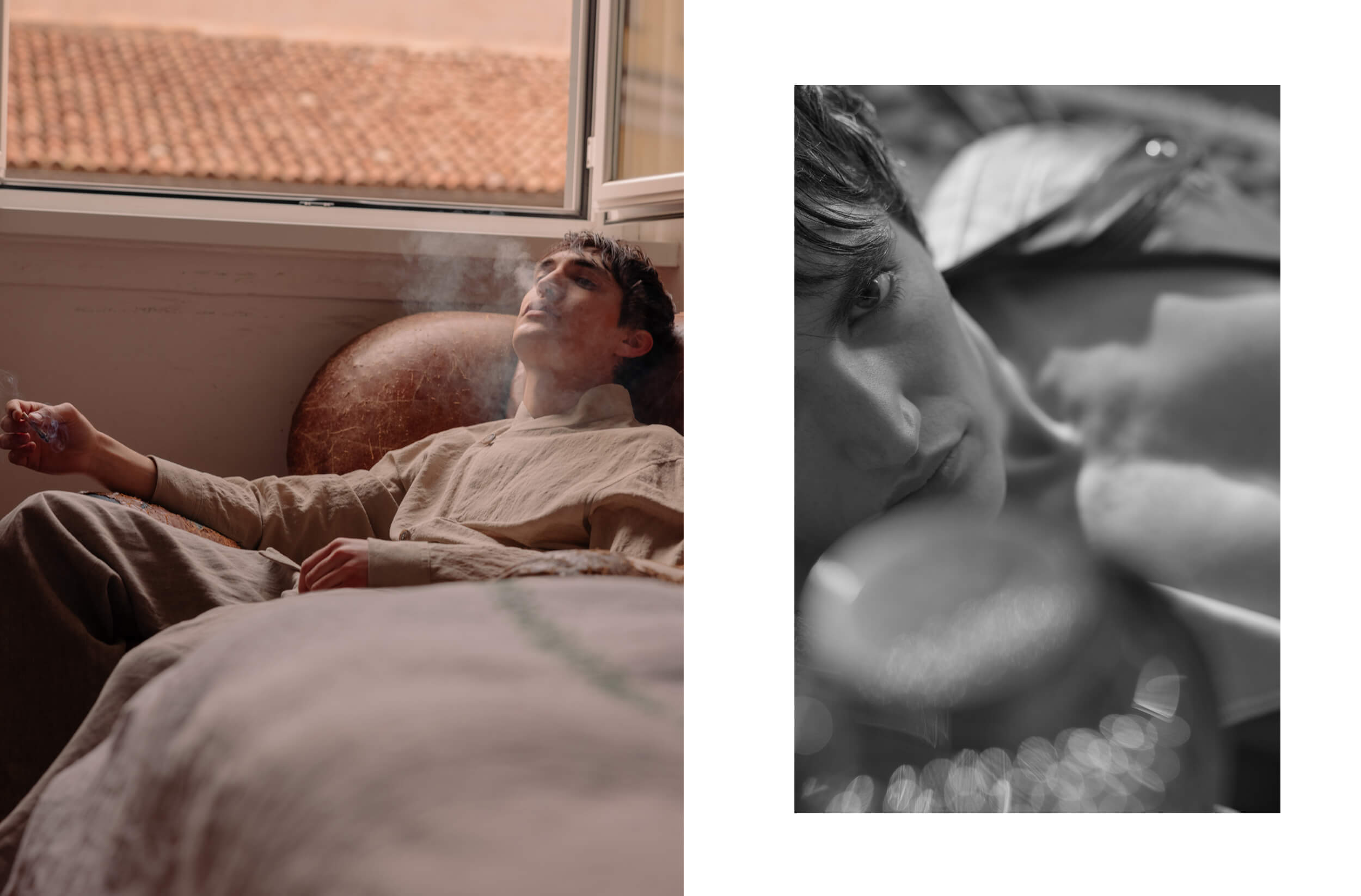Feelings are not easy to put into words. So, you’ve got to make them your own, feel them inside, sometimes, these feelings, you just need to devour them.
Rocco Fasano has made a life and a profession out of these feelings, introducing us to characters so different one from another, but at the same time, he’s been able to blend those feelings into something different from time to time, without forgetting the responsibilities that this implies, the importance of putting the right weight on things, as small as they can be. Because every detail has its own importance and value.
We met Rocco one day in Rome, in a house where you could breathe art and everyday life. And that’s why Rocco couldn’t but be our Cover for this month. And that’s why his words, his face, and his kindness, couldn’t but be the protagonists of this Cover that, just like our lives, can have some “interferences.”
What’s your first cinema memory?
One of the very first memories I have is the animation masterpiece “The Hunchback of Notre Dame,” which I saw at the cinema with my parents when I was really young. I was shocked by the power that the film had on me, and I thought it was one of the first moments in which I got totally overwhelmed by a totally new world.
The first time I understood that I wanted to be an actor was back when I was in elementary school, so quite early. We staged the Divine Comedy, Inferno, Purgatorio, and Paradiso, and I played the part of Dante. I was super young, but I remember it in detail because it was the first time that I ever realized that working on a character, learning lines, wearing someone else’s shoes, going on stage, being ready, and feeling that adrenaline when the music started playing and the lights went on, and then in a finger snap you were thrown in another dimension, it was a very powerful feeling that I remember with great joy, it’s had a huge impact on me.
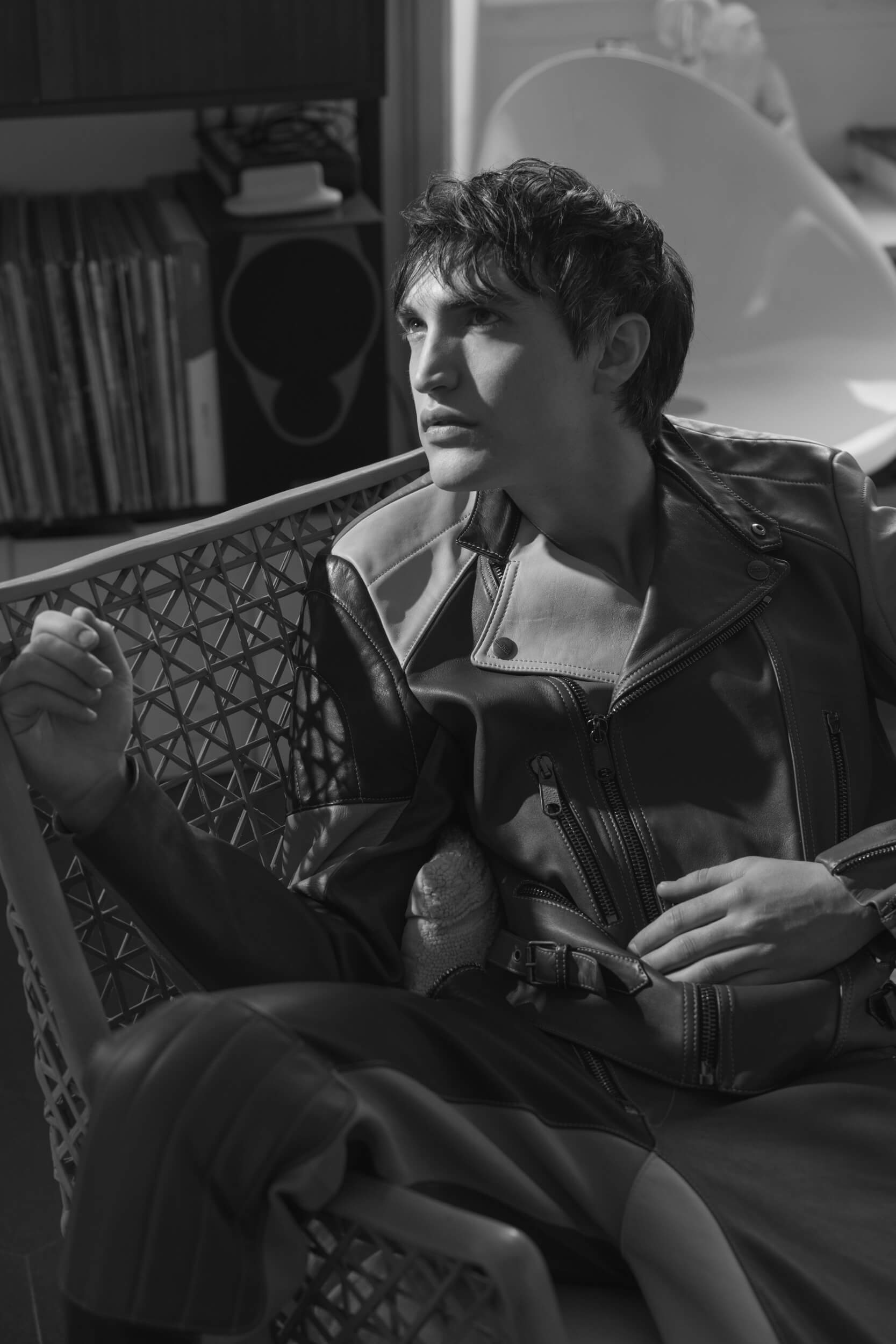
What makes you say yes to a new project when you’re offered one? Are there any particular values or features that it has to have to awaken your interest and desire to be a part of it?
To be honest, the first element that impresses me and on which I linger is the writing, the script, as it represents the solid foundation on which the making of any project is based: it has to be well-written. Then, special attention must be paid to the projects with a pedagogic vocation or rather those projects where entertainment also becomes a vehicle for the representation of and research on sensitive themes. Last but not least, I want to take the chance to have fun when I’m offered some part because I think this job shouldn’t lose its fun component, which is what I think makes the difference.
The choice to be part of a project is always a two-way process, in the sense that it’s a midway meeting, so on one hand, you clearly must weigh what is offered to you, understand if it’s well-written, if it’s captivating, if it’s a story that’s worth telling; on the other hand, at the same time, you need to be ready and fit for that kind of story, so it’s obviously a double choice.
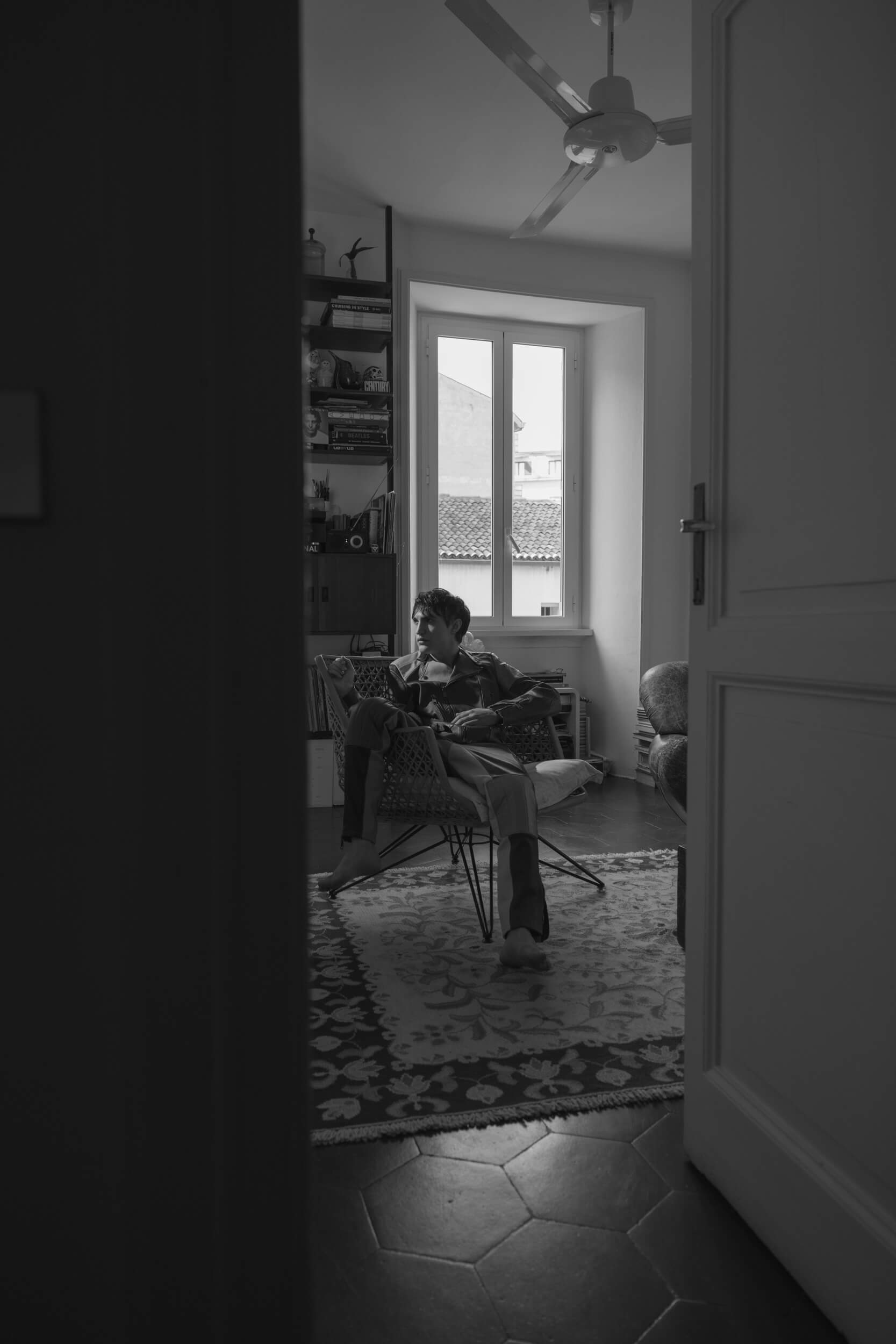
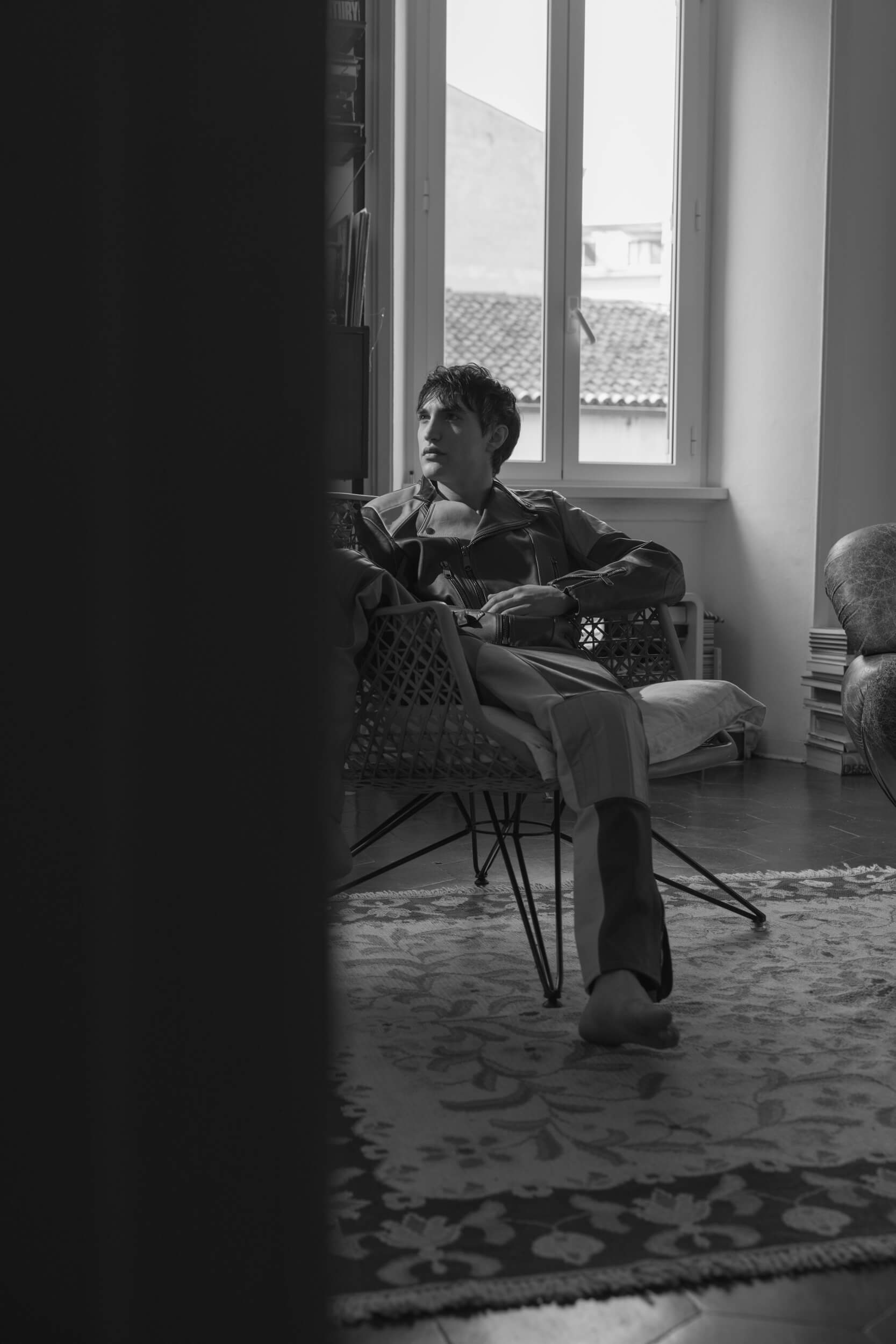
What’s the first thing you do when you read a new screenplay?
I usually highlight all the explicit and implicit aspects of the character to draw its psychological profile in the most complete way possible, which falls within the process of script analysis. So, the first thing I do when I read a new screenplay is to break it down into its basic elements, with a primary focus on all the aspects linked to my character in a way that I can profile him, understand the essential features of his way of talking, moving, so the non-verbal language, as well, and what elements of my personality marry that character so as to be filterable from the point of view of interpretation, or what aspects of myself are not suitable, if there’s some personal material that could be of use for me to perform this or that emotion.
This is what I do when I get a new script, alongside memorizing lines, little by little.
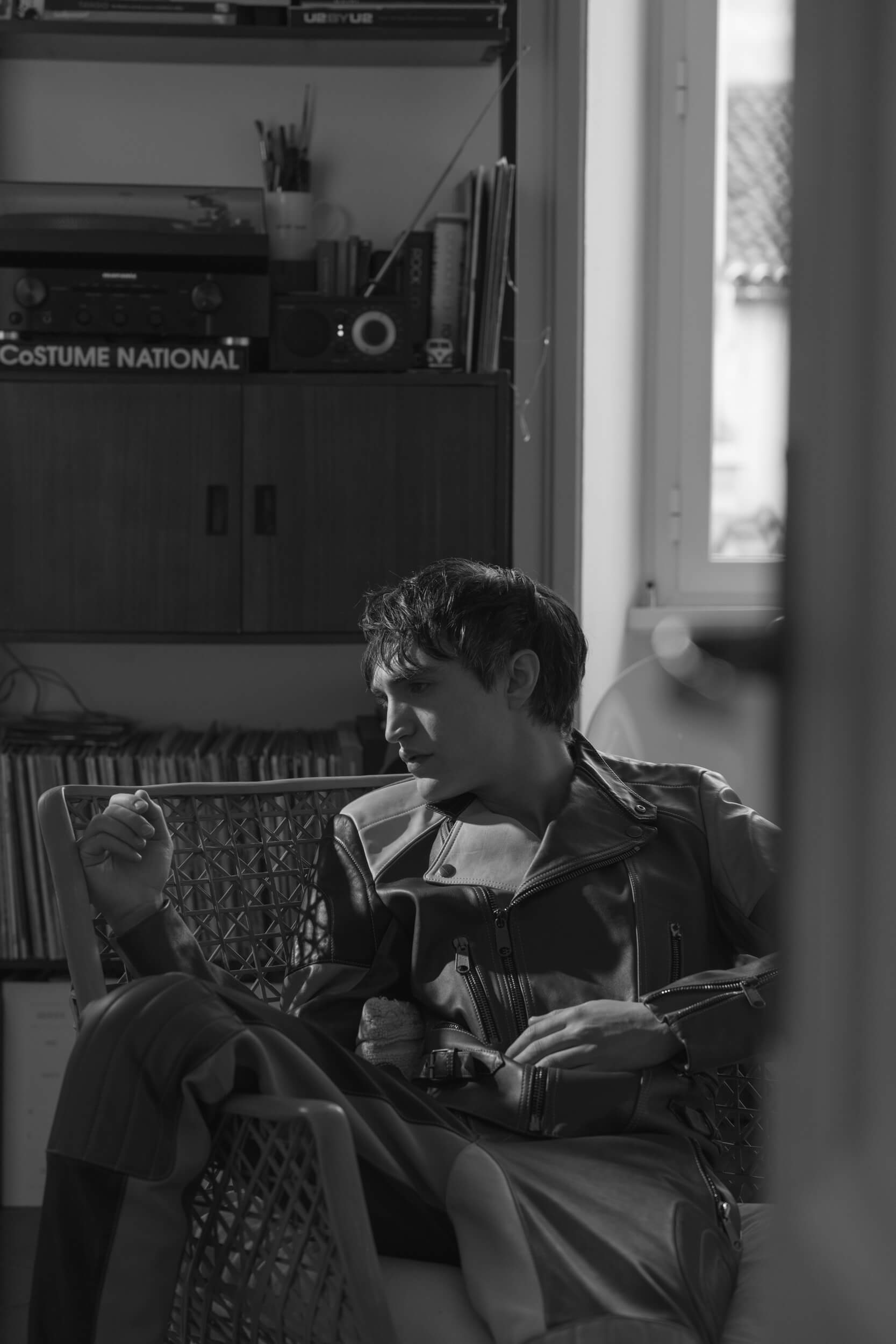
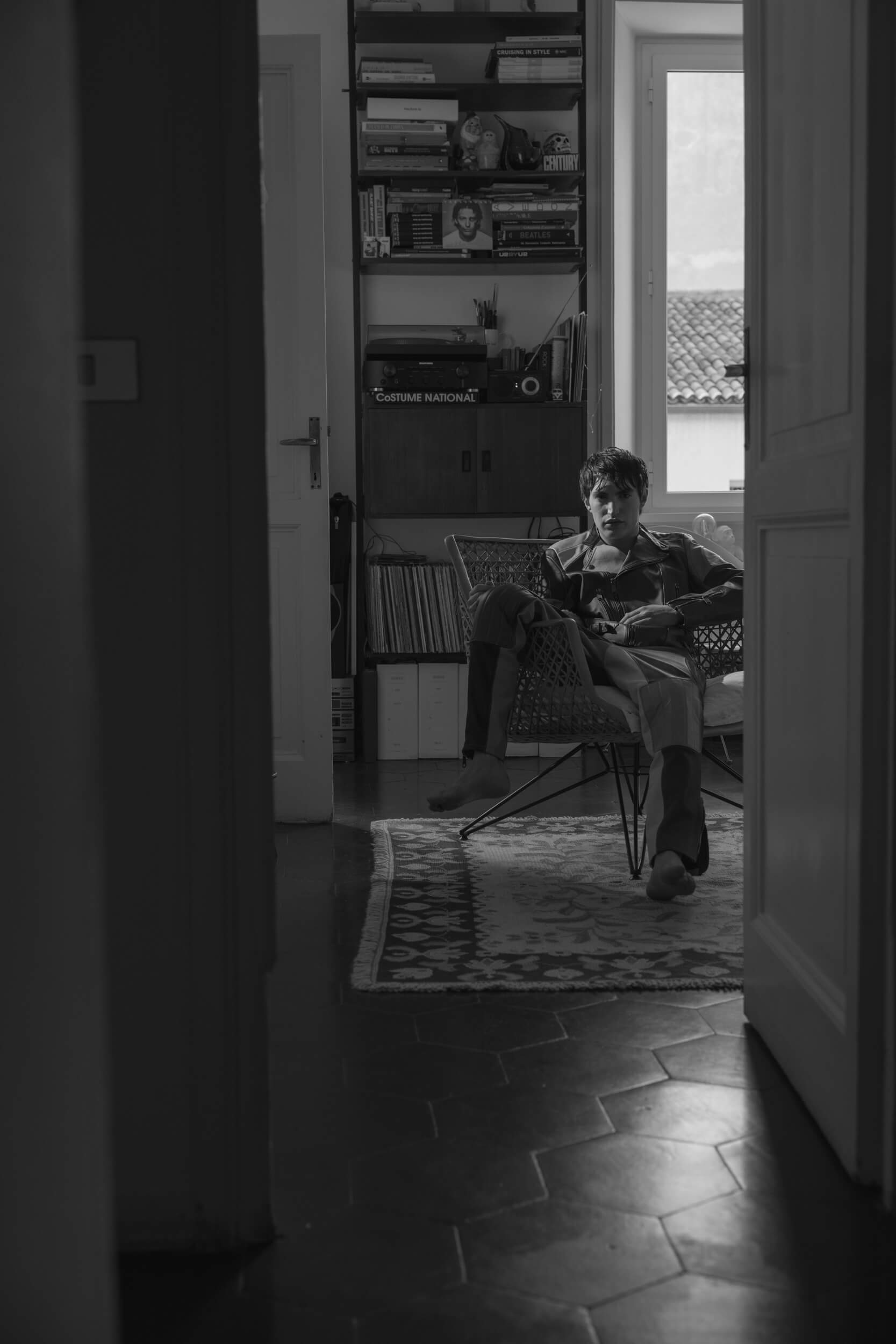
Acting means becoming someone else, thinking in a different way than usual, and acting physically and morally in ways that are not inherently yours. What kind of responsibility do you feel for yourself while you’re wearing someone else’s shoes?
First and foremost, I feel the responsibility of conveying in the most honest way possible the messages of which my character and the story we’re trying to tell are bearers, in a process that starts with research and dialogue with the creators and continues with rehearsals and the practice of what we’ve collected.
That of responsibility is, by the way, always a very important topic because actors have always been called upon to wear shoes that are not theirs or that, at the very least, are not totally so. The most powerful weapon we have, not only to achieve good results acting-wise but also to grow up as human beings and artists, and also as an ideal condition to have on the set, in the workplace, so that everyone can work in a calm environment, is empathy. The first question you ask yourself to face this responsibility in the right way, I think, is: what is my character feeling at this moment? What’s their emotional arch, what is it that they’ve learned, lost, and acquired in this story? But also beyond that because it’s nice to have complete knowledge of your character, also including aspects that precede and follow the narrative arch of the movie so as to be able to communicate the features of the character in the film in the most tridimensional way possible.
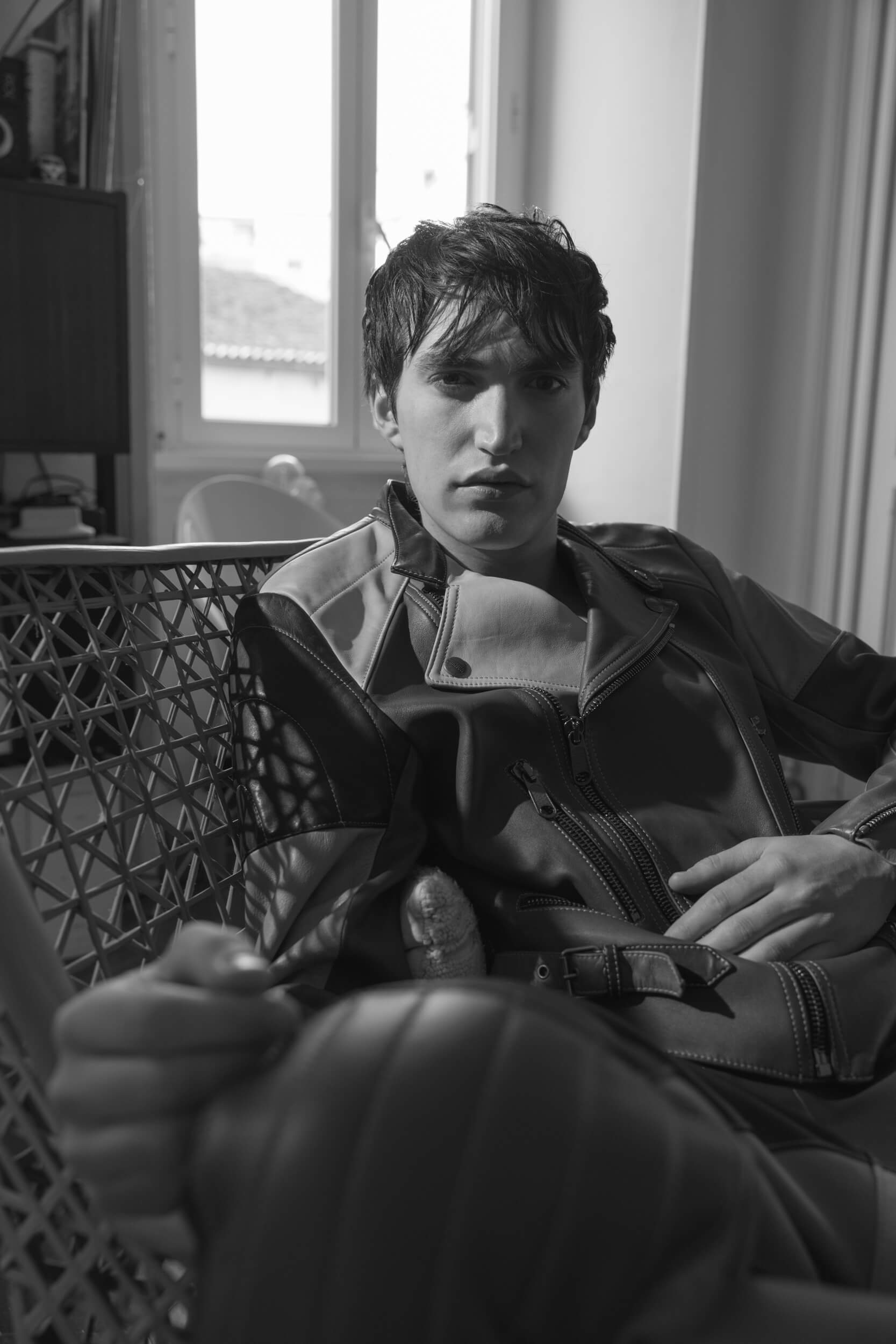
“The most powerful weapon we have […] is empathy.”
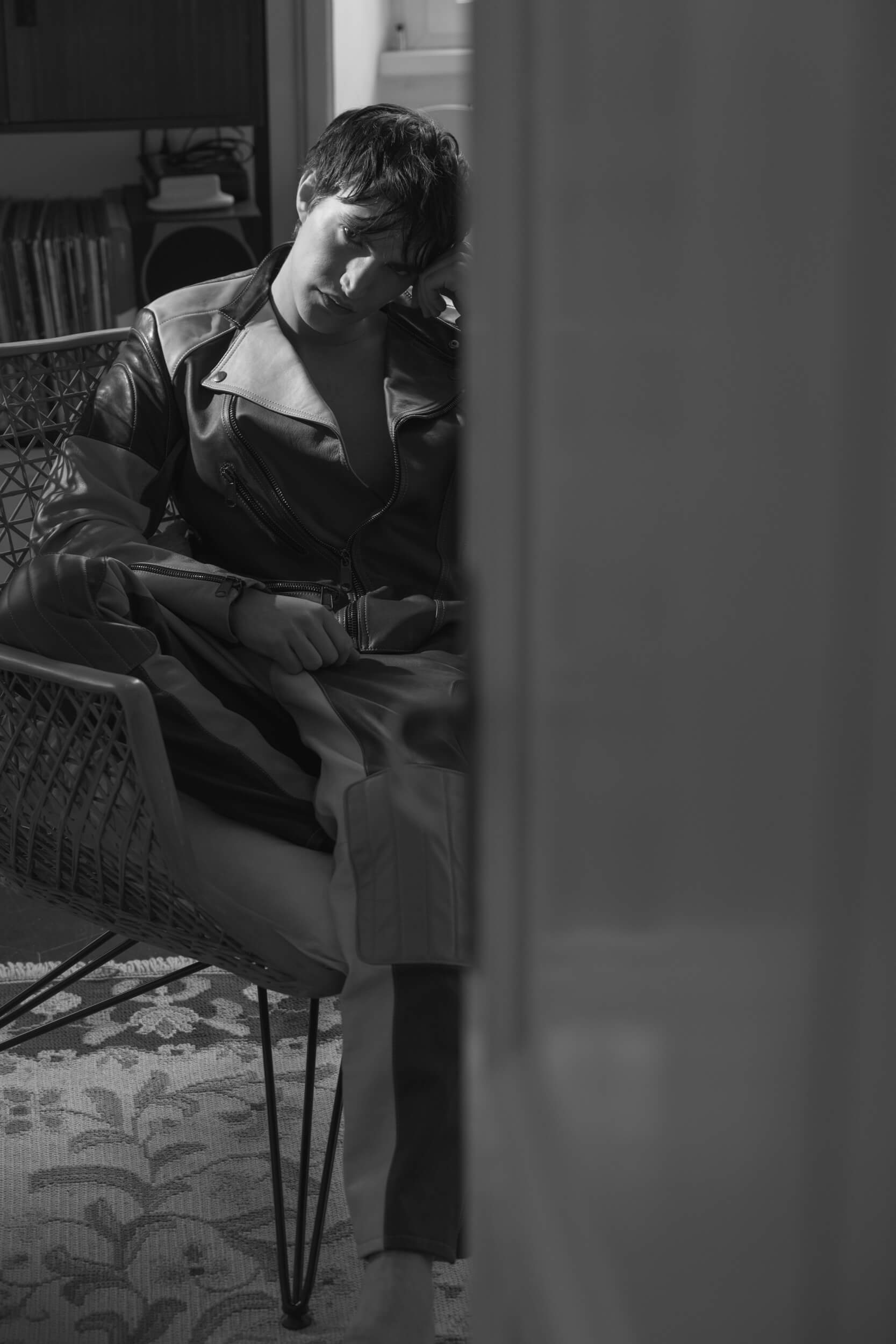
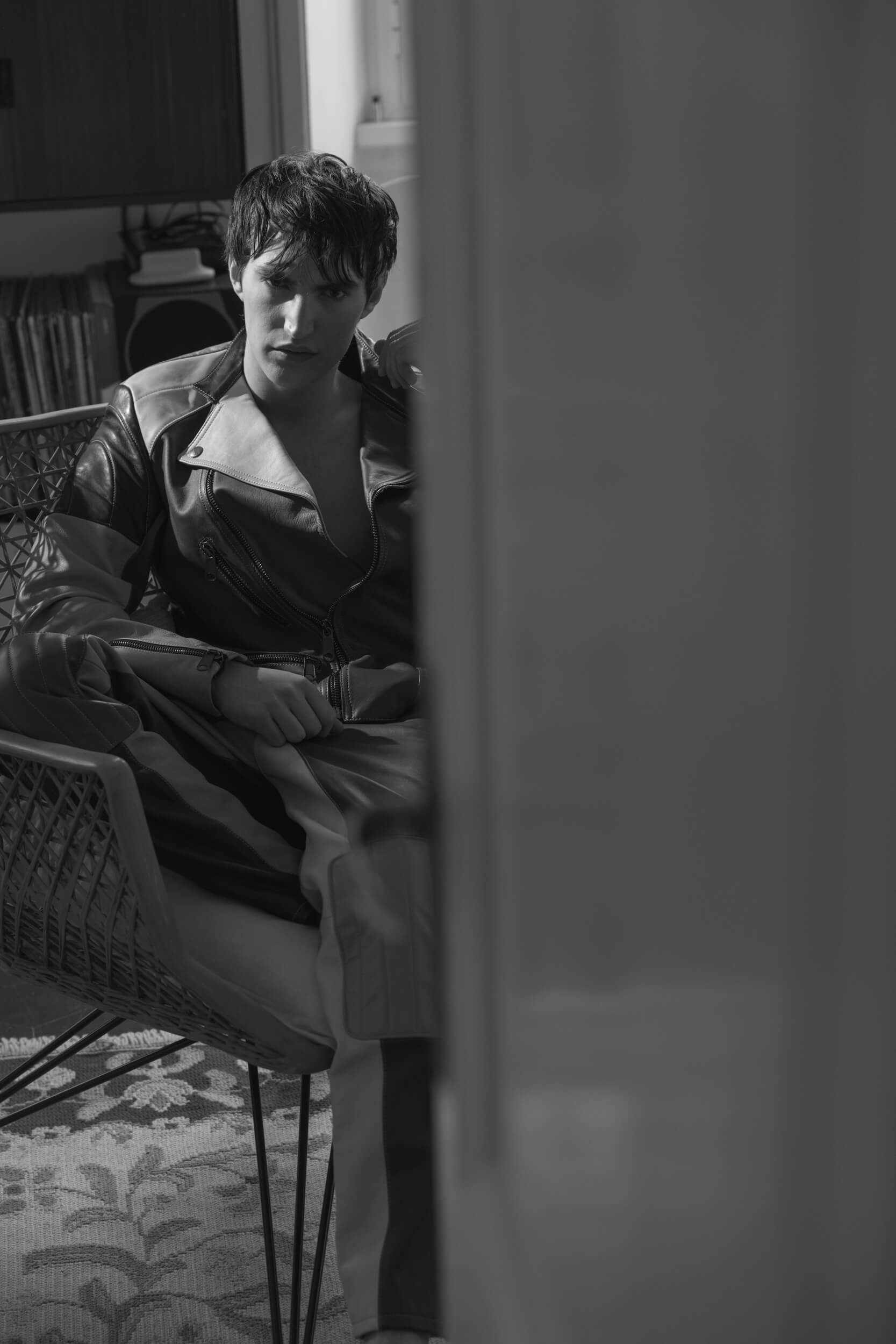
How much Rocco is there in your characters?
Of myself, in my characters, there’s always everything and nothing, in the sense that my character obviously passes through me, it originates from ink on paper, but then it necessarily has to pass through me, so he somehow comes to me, I’m the one who wears his shoes, I’m the one who pours the emotional, psychological, and practical material into him. However, at the same time, you clearly cannot always play yourself because it wouldn’t work, not even if the character should oddly enough be an exact copy of your own self, which never happens because even though they are inspired by you, it could never be really the same, as the dynamics of the story would make them take a life of their own, as it should be.
Even in those cases, staging or re-staging certain feelings, and states of mind, requires a specific technical procedure, of filtration. You are feeling a certain range of feelings at that moment, on that day, on that week, while the character is totally elsewhere, so you necessarily need to filter yourself, and reach emotional states that are not properly yours.
Within this procedure, should you be in a stage where you’re feeling the same things that your character is feeling or some totally opposite emotions, it’s still always about adapting yourself, and working on yourself.
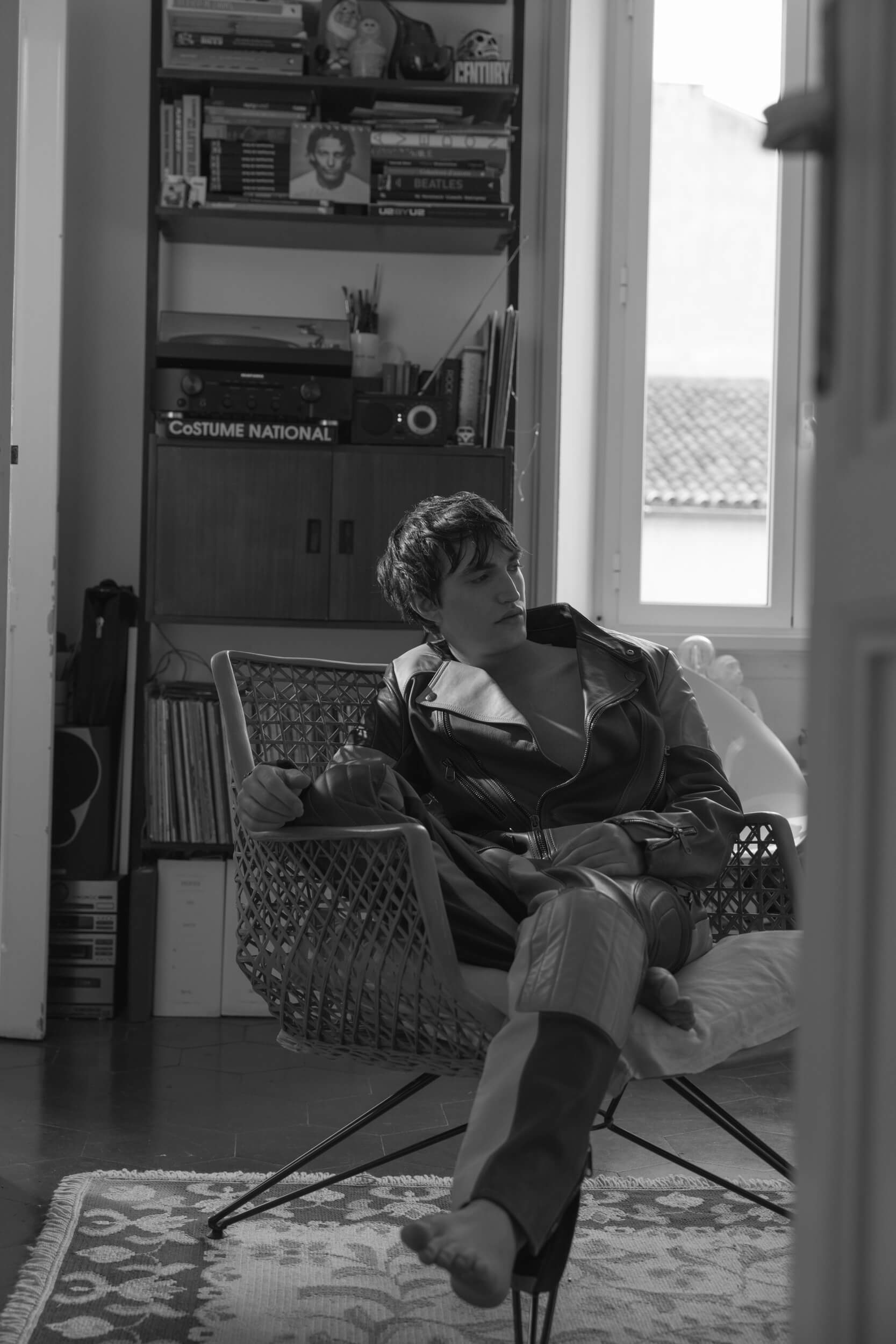
Do you follow any sort of routine when you approach a new character, or does every project have its own world?
Over the years, my method has more or less stabilized and now it basically consists of theoretical research, practical exercises, and rehearsals with the director and other actors; then, in particular cases, sometimes I might find a character easier to face using mostly my head, while in other circumstances you might want to rely on your instincts, in an organic way, and most of all with a wise direction.
The constant element that I try to rebuild every time consists of rational limits within which I can feel free to act irrationally.
Every project is unique and every character requires a totally different work; the aspect they all share is the research because before managing to do what the character does on paper, you need to make research on what’s around those events, so you need to understand the character’s social status, family dynamics, his father, mother, lost or past lovers. You need to understand all this and then all the other aspects linked to the story you’re telling. After that, the work you do to bring them on the screen changes from project to project, also depending on the director and the kind of movie you’re making; there are certain movies in which not only is it convenient but also appropriate to face the character and the scenes in an organic way, improvising a lot, so digging deep into the behavioral, emotional, psychological foundation of the character and then, somehow, kick-start the process and improvise, or respond organically to the dynamics, to a scenario. On the other hand, there are projects built in such a way as to be so far from you that you need to deal with them head on.
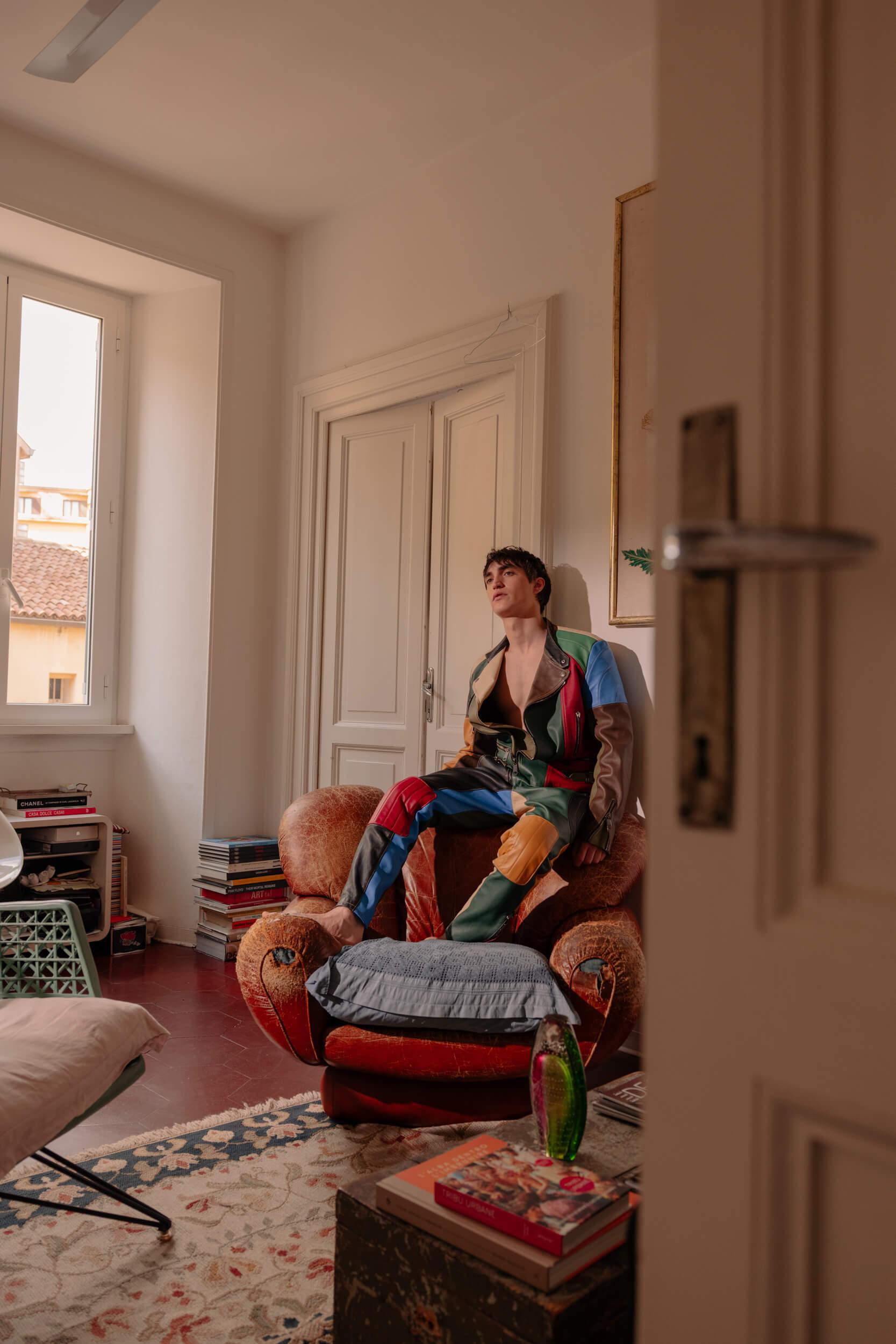
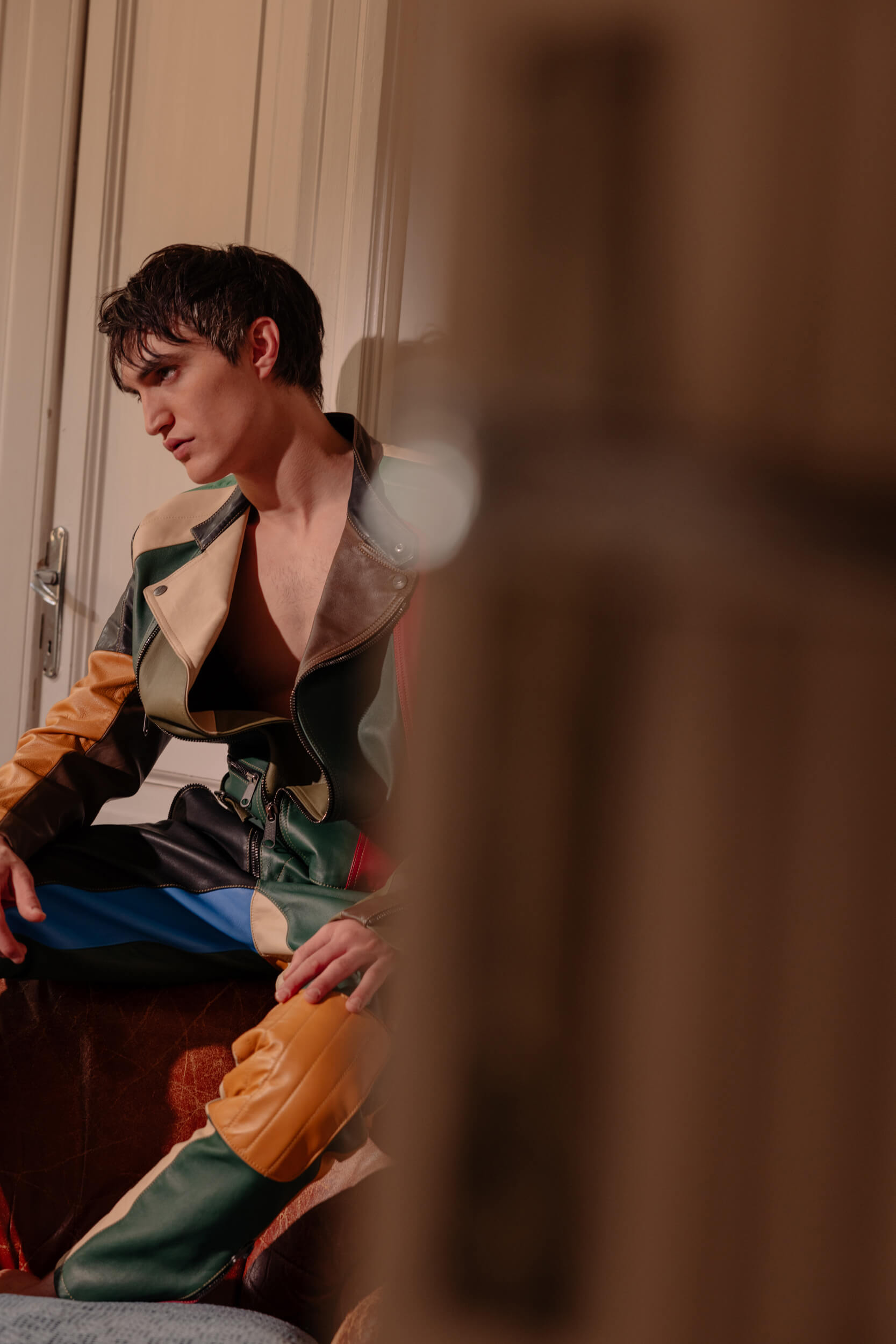
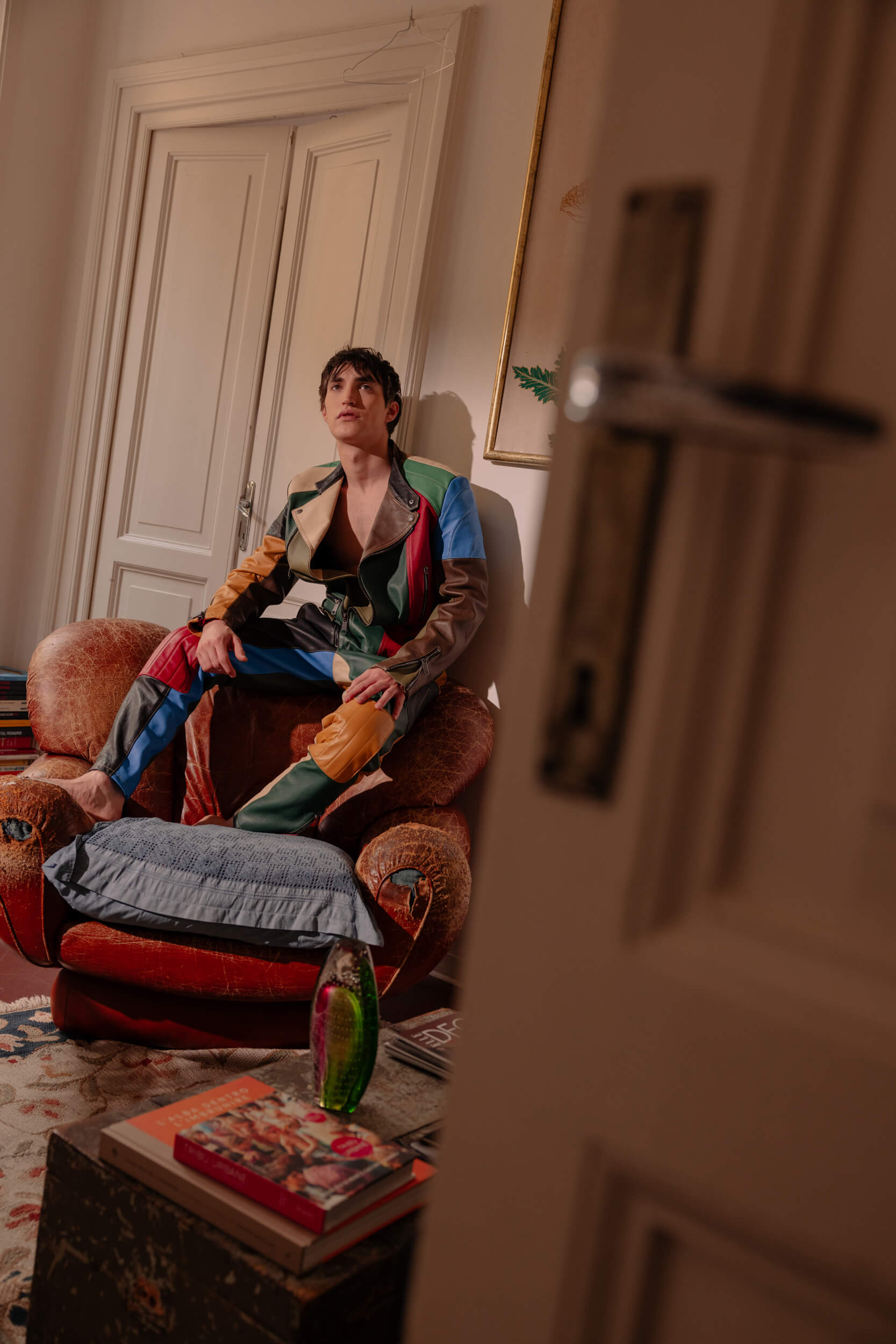
How has your entrance into the world of fashion happened, instead? And how would you describe your style?
Fashion has always been a world of which I’ve been and I am part in parallel with my primary job, acting. It all started by chance, as it often happens; someone stopped me in the streets of Monti, a neighborhood in Rome, it was a photographer, who’s still a dear friend of mine: she told me that I have a Greek-Roman profile and that she wanted to take some pictures of me for a magazine. After that, they’ve “invited” me to use my aesthetic potential also to work in fashion. Once, I would do it as a model, now I mostly do it as a talent in collaboration with brands. Anyways, it’s a sparkling world, and it’s so nice to be a part of it because it’s the world of beauty, of the research of beauty, the meticulous work aimed at finding always new forms of beauty, new harmonies or disharmonies, so it’s very fascinating to be part of it and witness the work of the incredible masters that are behind the scenes.
My style varies a lot, I’m a bit split between street style, namely hoodies, boots, and oversize jeans, and smarter clothes, like shirts, suede ankle boots, but I’m always looking for a bit of color, I really like color: whether my style is street or elegant, I want lots of colors.
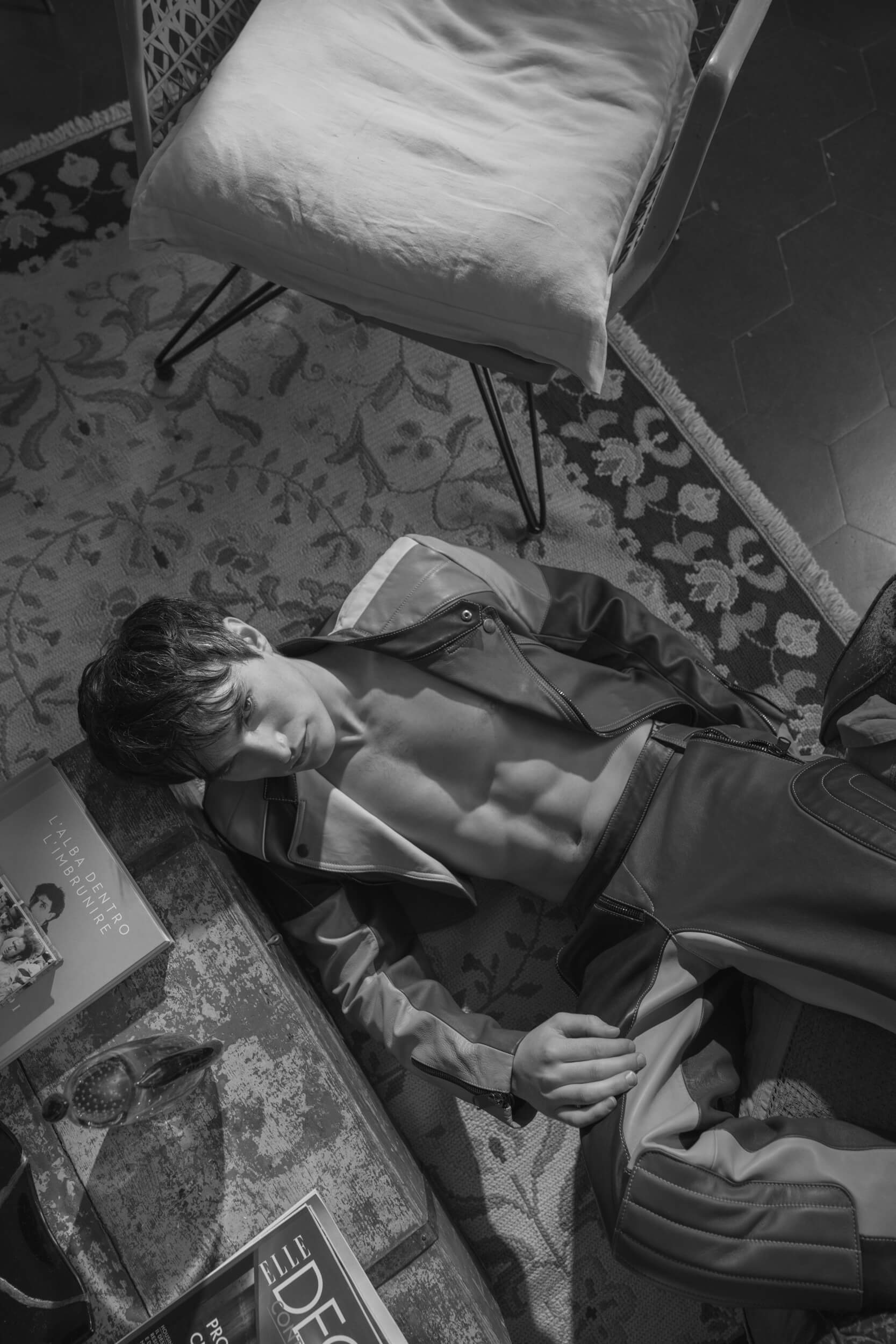
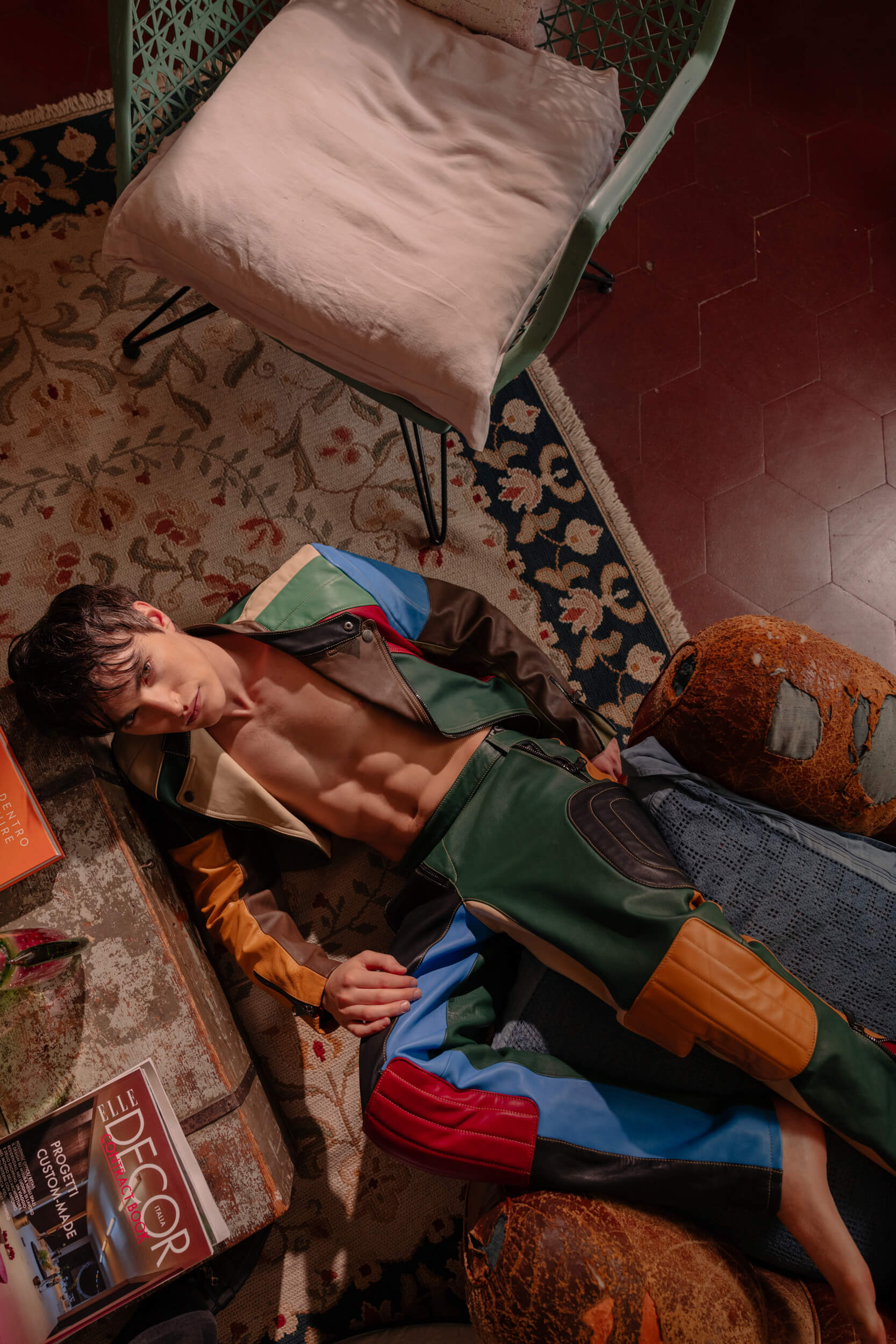
“…whether my style is street or elegant, I want lots of colors.”
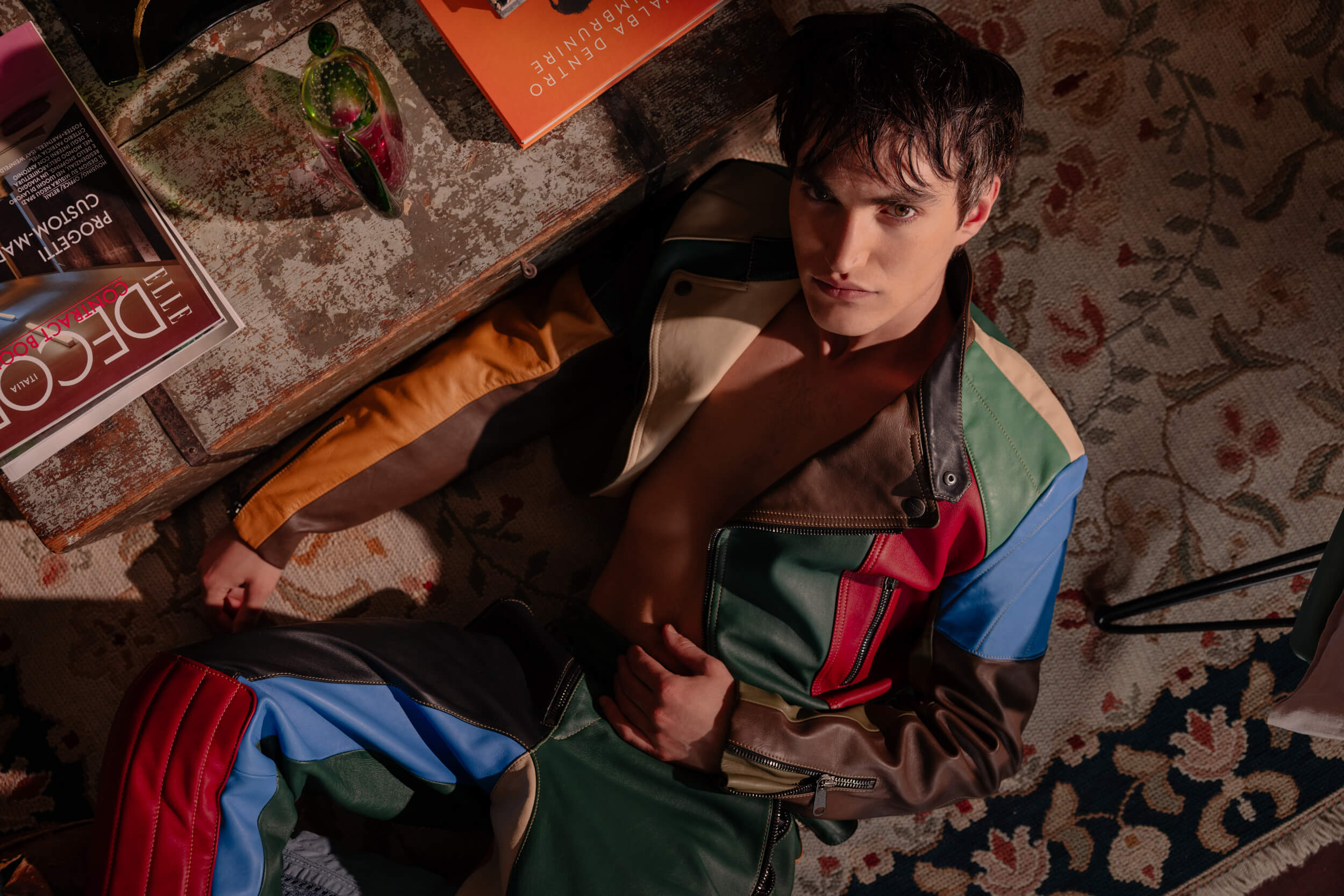
What’s on your mind when you’re modeling for a photoshoot? What makes you feel uninhibited in front of the camera and what, on the contrary, holds you back?
I try hard to be quite uninhibited in front of the camera.
My relationship with the camera on a photoshoot, compared to the camera on a movie set, is different but not so different after all, in the sense that, when in a photoshoot, you realize a microscopic and “frozen” version of what you do in a continuous and prolonged way on a cinema or TV set for a real character. Simply put, I always try to be a performer, so that the picture doesn’t come out flat, and I don’t look like a mannequin, so, in a way that it has intention, that I have a soul coming out of my eyes, that it conveys an emotion, whether it is from a darker, or happier, more curious palette, I always try and communicate something.
What certainly encourages uninhibition is experience, practice. I remember that during my first shootings, just like on my first auditions and projects, my legs would shake, my brain would get cloudy, and anxiety would take over. These things can happen to anyone and, little by little, you learn to keep it together, and control your feelings because you work with them, so you need to tightly hold the reins of the elements you work with, trust yourself, which is somewhere you get to precisely through your work, when you fail, make mistakes, and then recover.
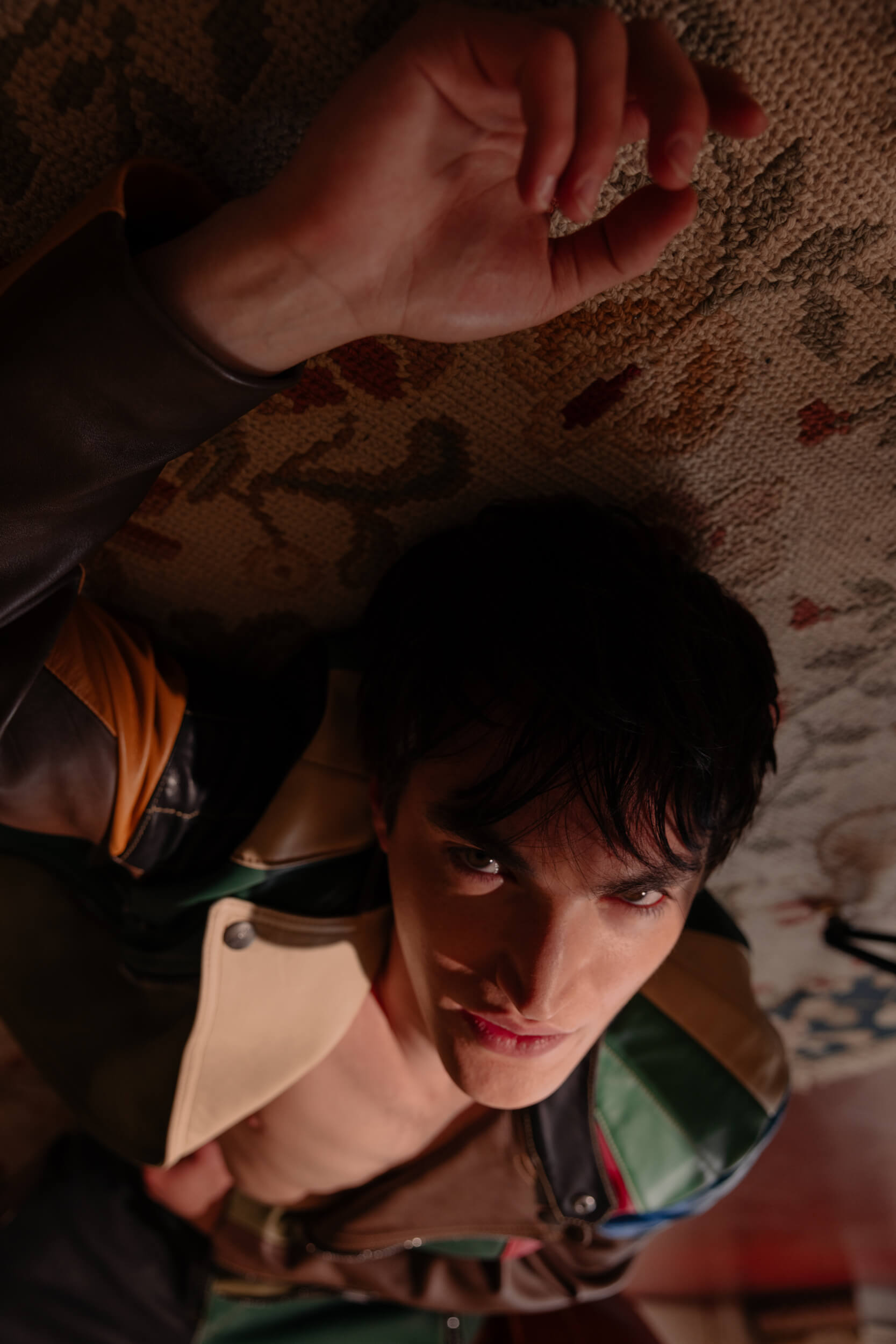
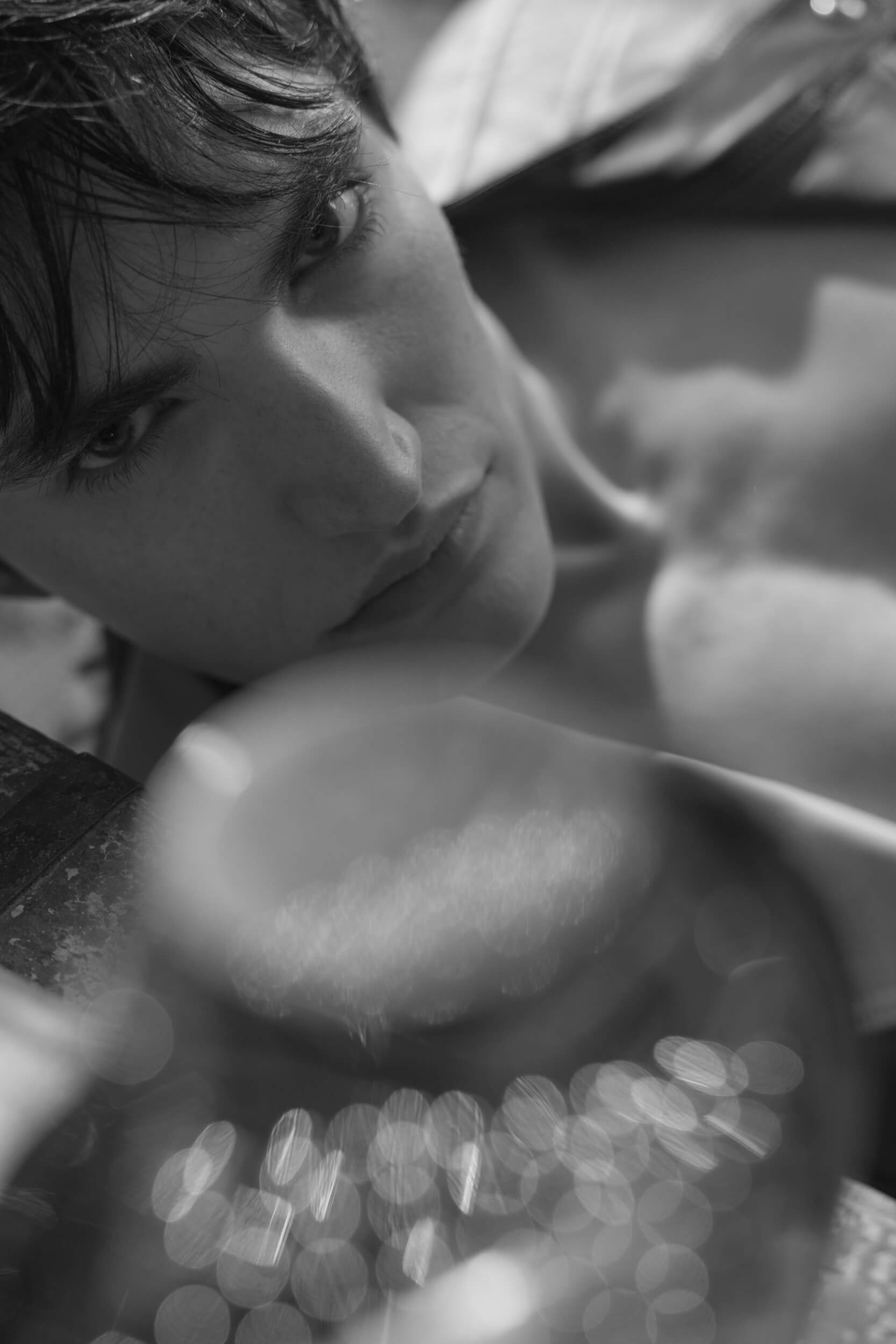
Have you found out something new about yourself while working on your latest projects?
One of the amazing things about this job is that on every project you get to discover something new about yourself, like the things you thought you couldn’t do or felt far from you before experiencing them. They’re two opposite lines that meet midway: on one side, the attempt to walk away from yourself and your comfort zone, and on the other side the achievement of new elements that enrich you, sometimes even permanently.
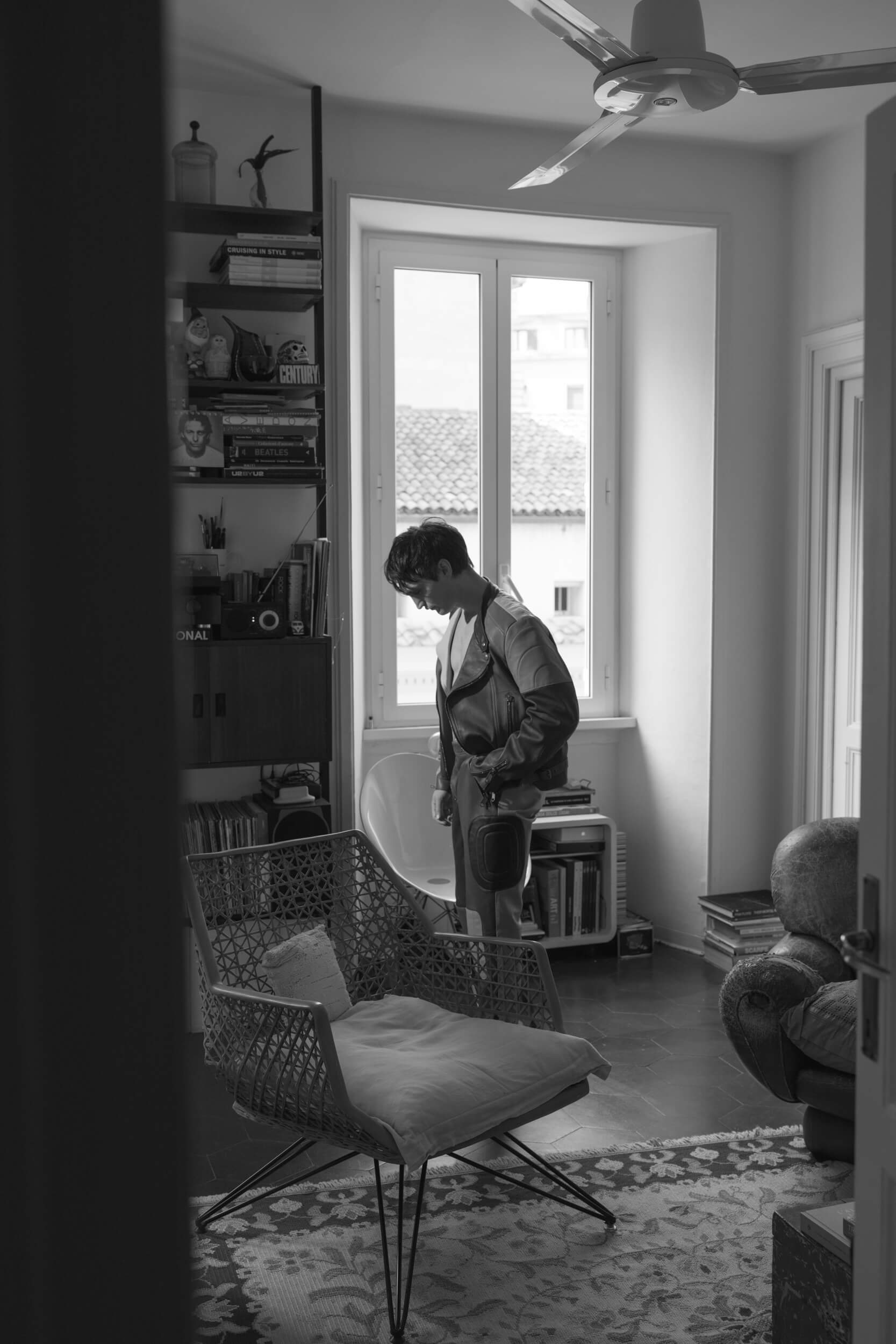
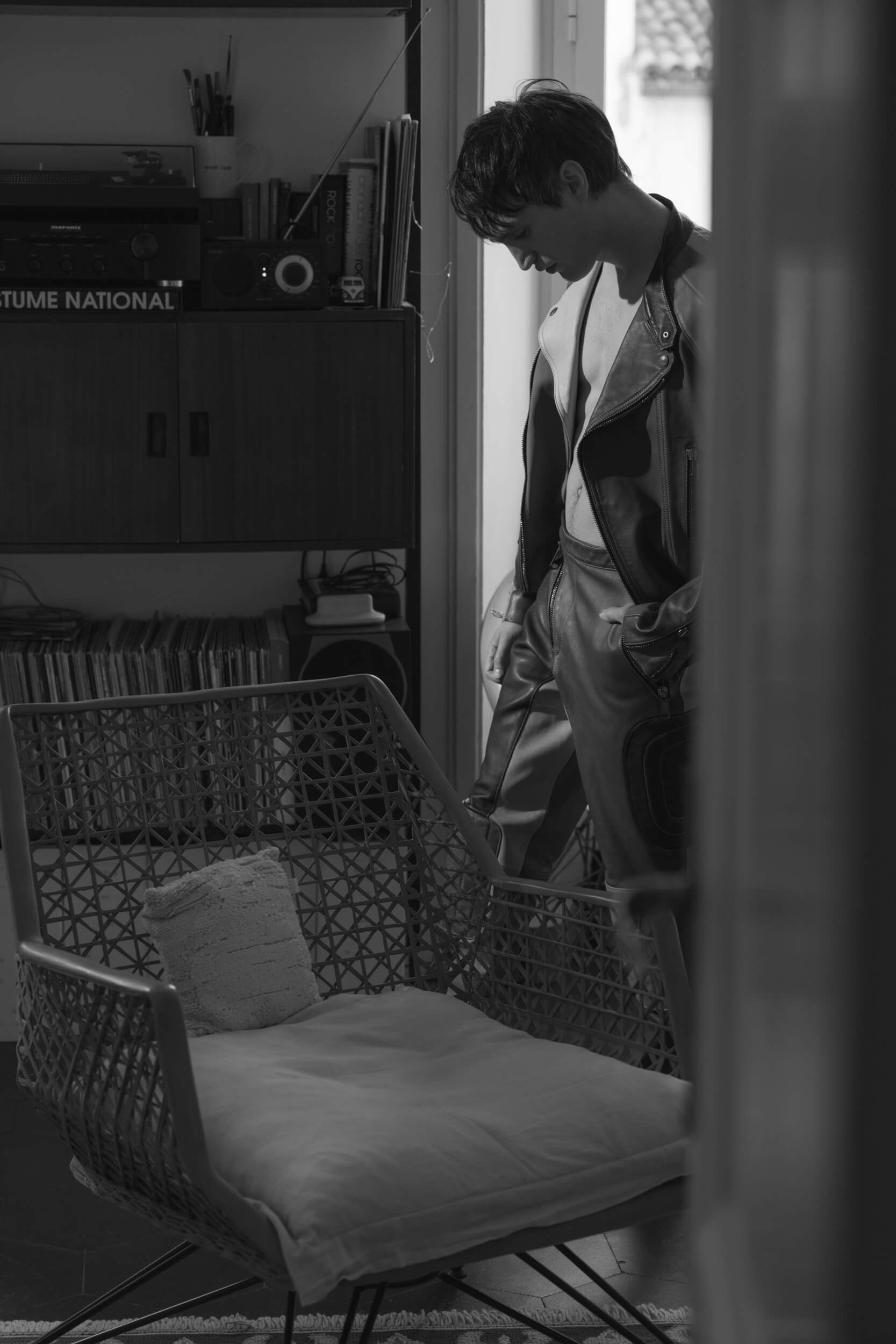
The most significant encounter of your career so far?
There have been many. Obviously, I can’t but mention “Skam Italia” and all that it meant for me. “Skam” was the first experience that brought me close to a more multi-layered character, a richer project, a series that we’ve carried forward for up to season five and wrapped a few months ago. It’s not only about the complexity of my character, Niccolò, a homosexual boy suffering from borderline personality disorder who, in spite of all this, tries to live and protect at all costs the love he feels for a boy, Martino. It was a wonderful experience because it opened some incredible doors also on a level of understanding and professional and human growth, it’s been an experience that I can’t but keep in my heart for the rest of my life, and that has also made me become successful in Italy and, above all, feel grateful – I’ve learned that we, who do this job, can change things, and do it for the better, we can help people, which is something I was only partially aware of before.
With “Skam”, I got to meet thousands of boys and girls during conventions, or through messages on social media when they come to see us in Paris, Milan, Oslo, everywhere we go, thanking us for what we’ve represented, for the honesty, the effort. We tackled themes that they experience every day, and this has really changed me, it has had an incredible and permanent impact on me. So, my gratitude goes to “Skam”, to those who’ve chosen me, to those who’ve trusted me.
“Hotel Portofino” has been an incredible experience, as well, because there I got to play Gianluca, an anti-fascist activist living in 1926 Portofino, where fascism was on the rise. This was also a role linked to significant themes, this time intertwined in glove, with political engagement united with thwarted love, as my character falls in love with Anish, a regular guest of the hotel. I’m so grateful for the fact that all the projects I’ve been part of so far, “Don’t Kill Me” included, which is an incredible story of catharsis, rebirth, growth, and freedom of a female character from a series of burdens, toxic lovers, situations that want to clip her wings, this dark fairytale directed by Andrea De Sica, are projects that fit into a thread that’s not only about the language, in the sense that they want to use a new language in Italy, but also projects that fit into the entertainment field and tackle very delicate and contemporary topics.
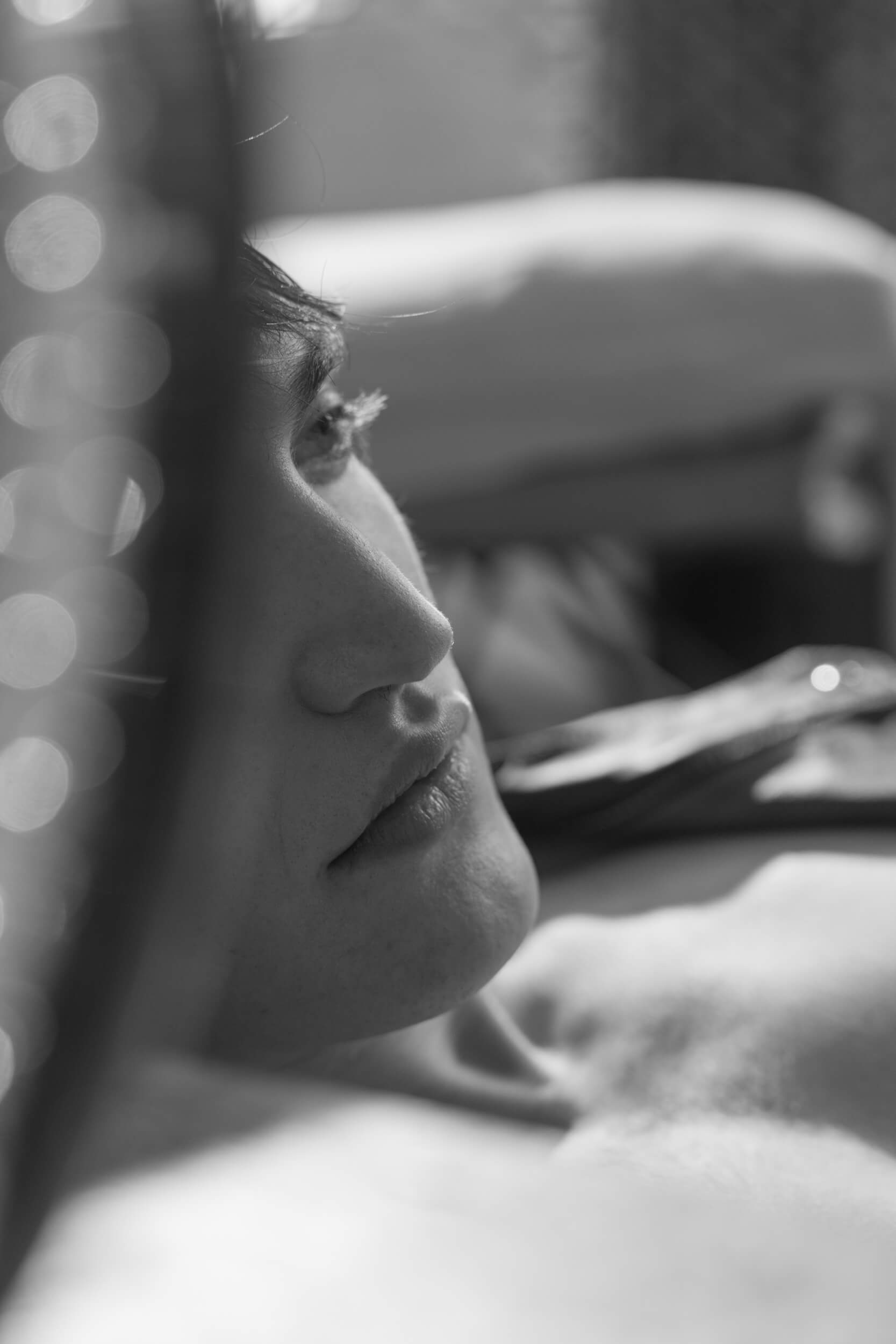
“…I’ve learned that us who do this job can change things, and do it for the better…”
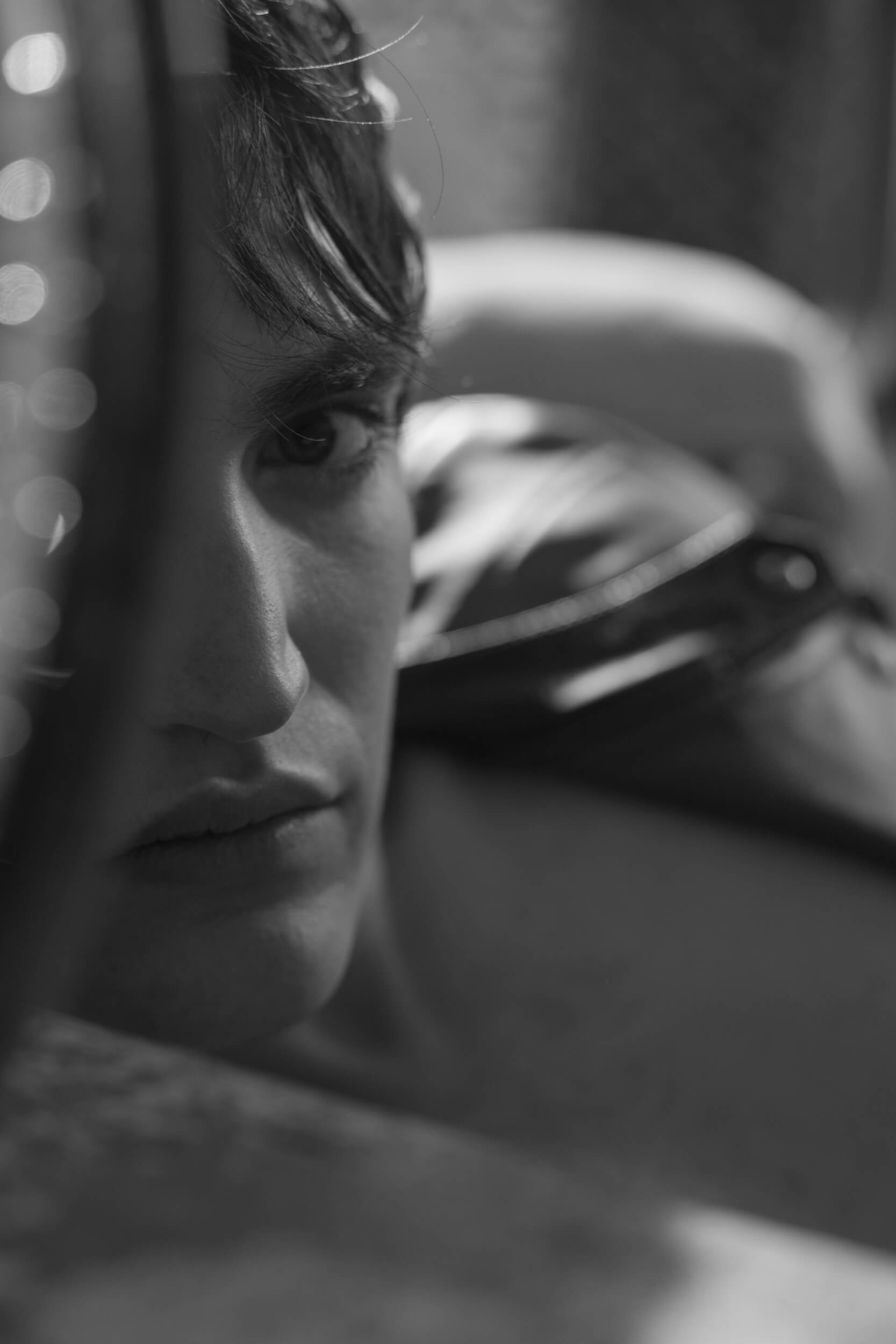
What’s the advice you’ve got that had the most significant impact on your way of working? And the biggest bullshit you’ve been told?
I was told that, as an actor, one of the few decisional powers you have internally is to learn to say no, and this has certainly had an impact. The biggest bullshit I heard was that from this field I should expect only disappointment from things and people and, instead, despite the obstacles, today I wouldn’t be the person I am without having met the incredible human beings with whom I’ve been lucky enough to work and that have changed me for the better.
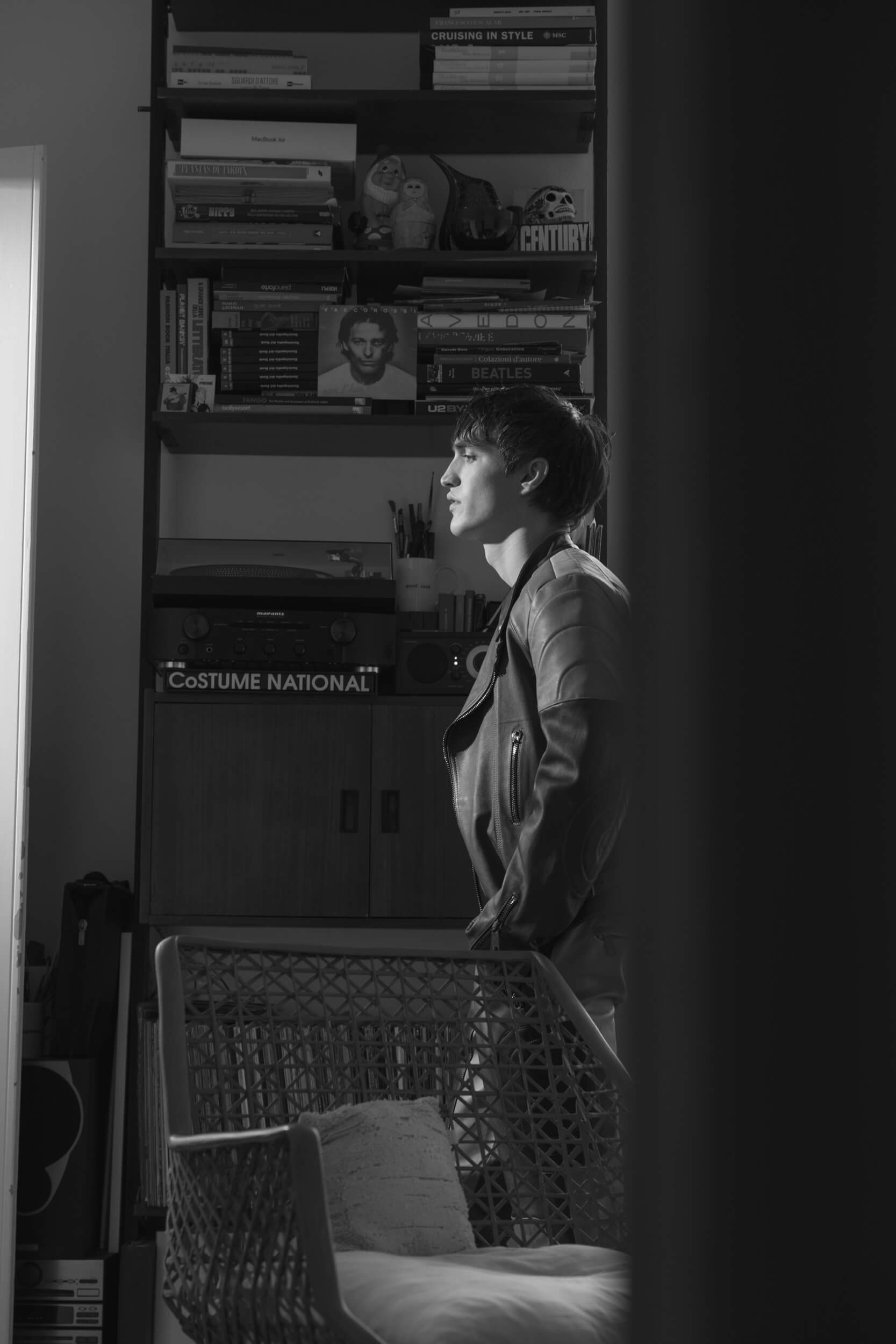
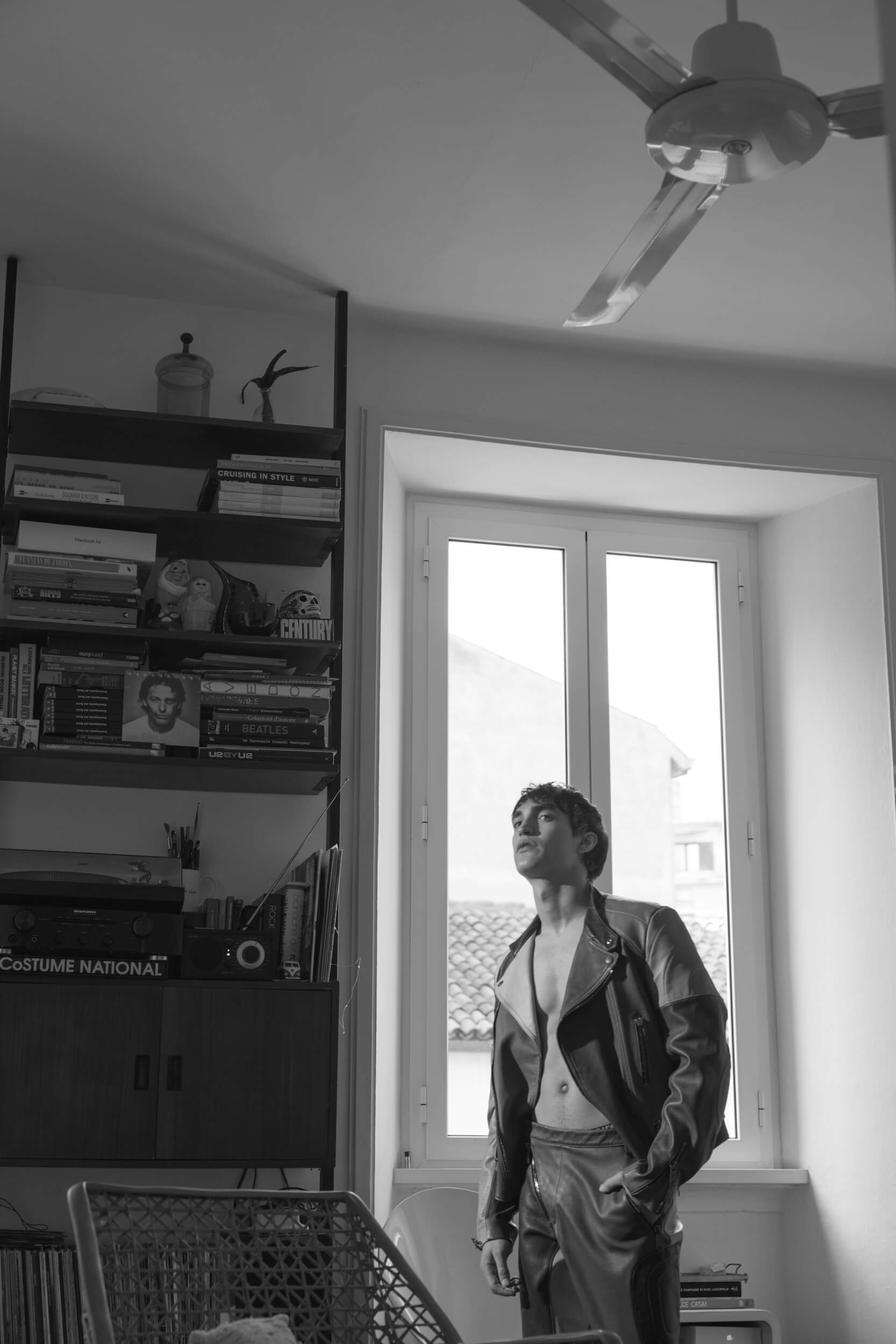
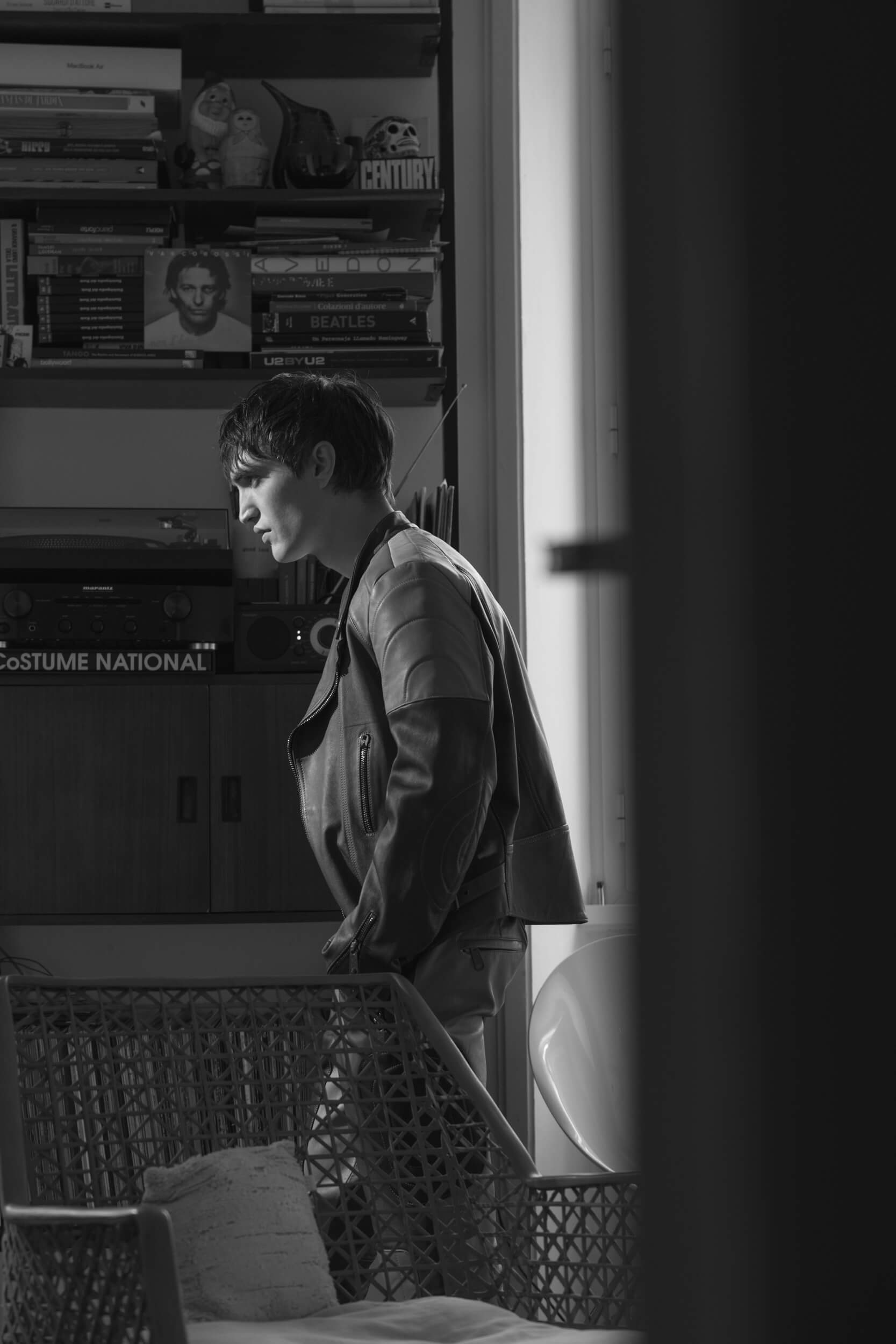
What o who inspires you on the job, but also in your everyday life?
The actors, actresses, colleagues, and friends who follow this alchemic dream with the hope of a child.
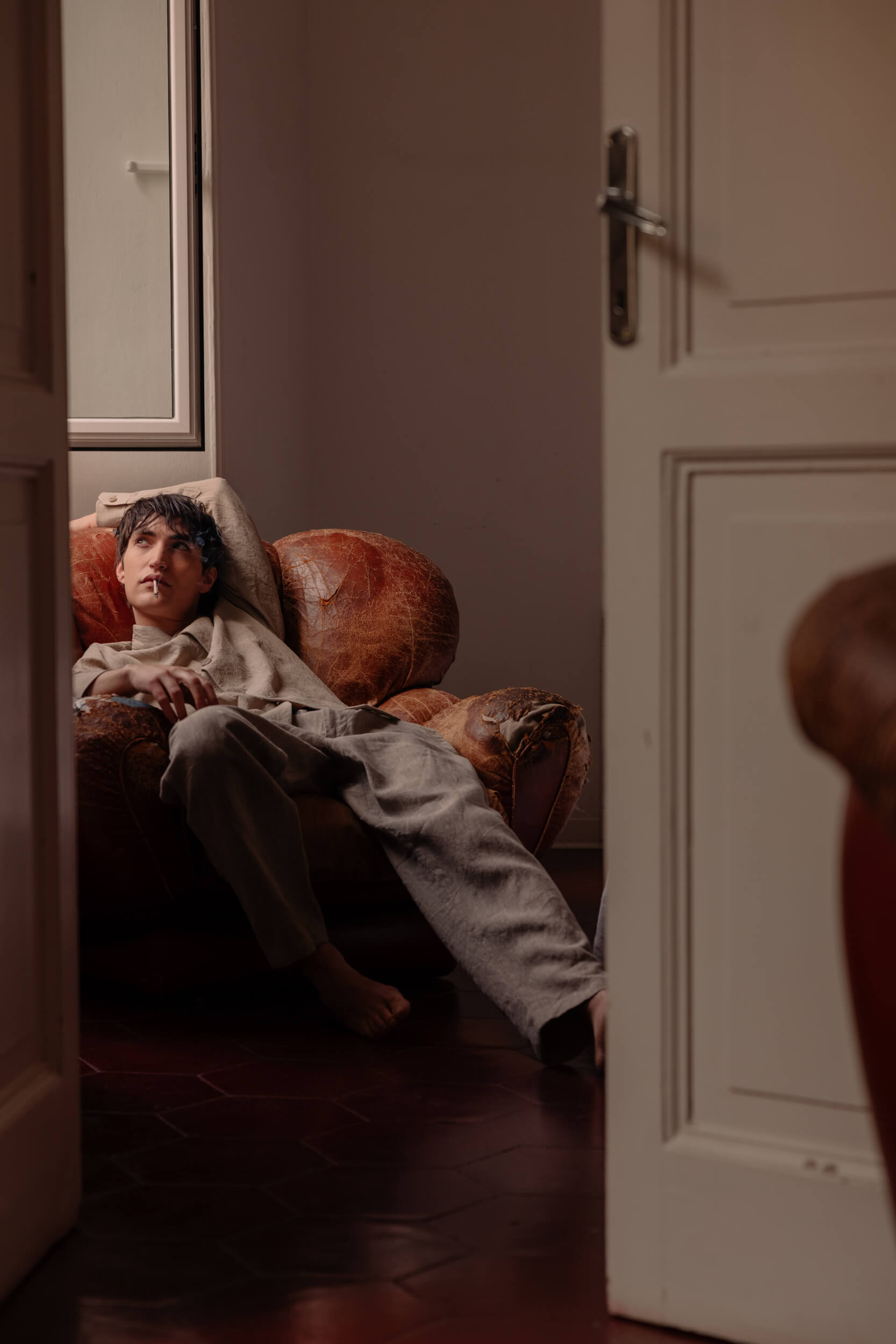
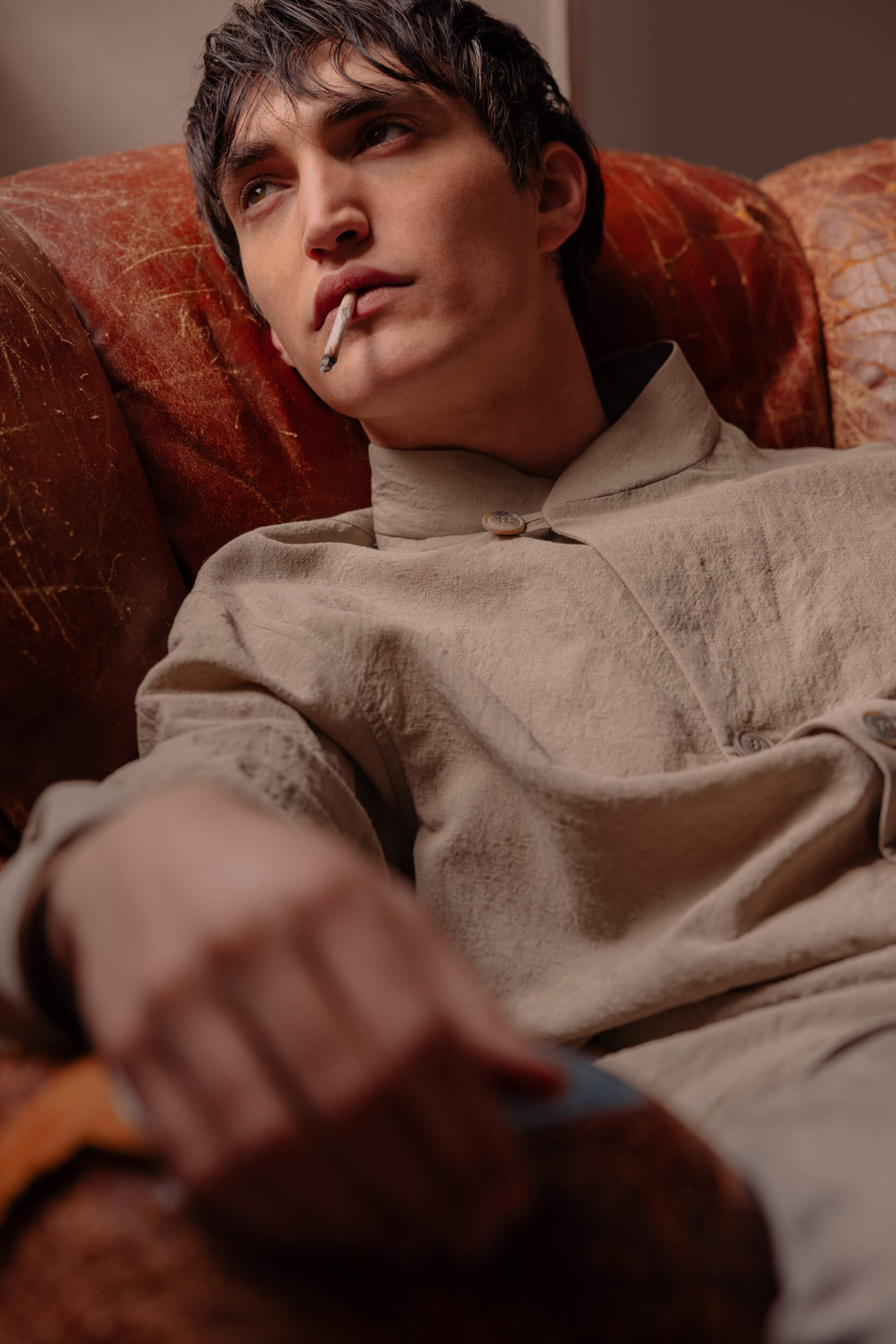
You acted in several music videos by Italian artists like Gazzelle and Lowlow. What’s the best one ever made so far, in your opinion?
I’ve taken part in multiple music videos so far, and it’s hard to choose: no doubt, the one by Gazzelle was a unique experience because it was shot on film, set in the 1990s, and I was a werewolf.
The playlist of your life begins and ends with which song?
It’s hard to choose. It would begin with some Chopin and end with Nirvana. Or the other way around.
A song that describes this particular moment in your life?
“All For Us” by Labrinth and Zendaya.
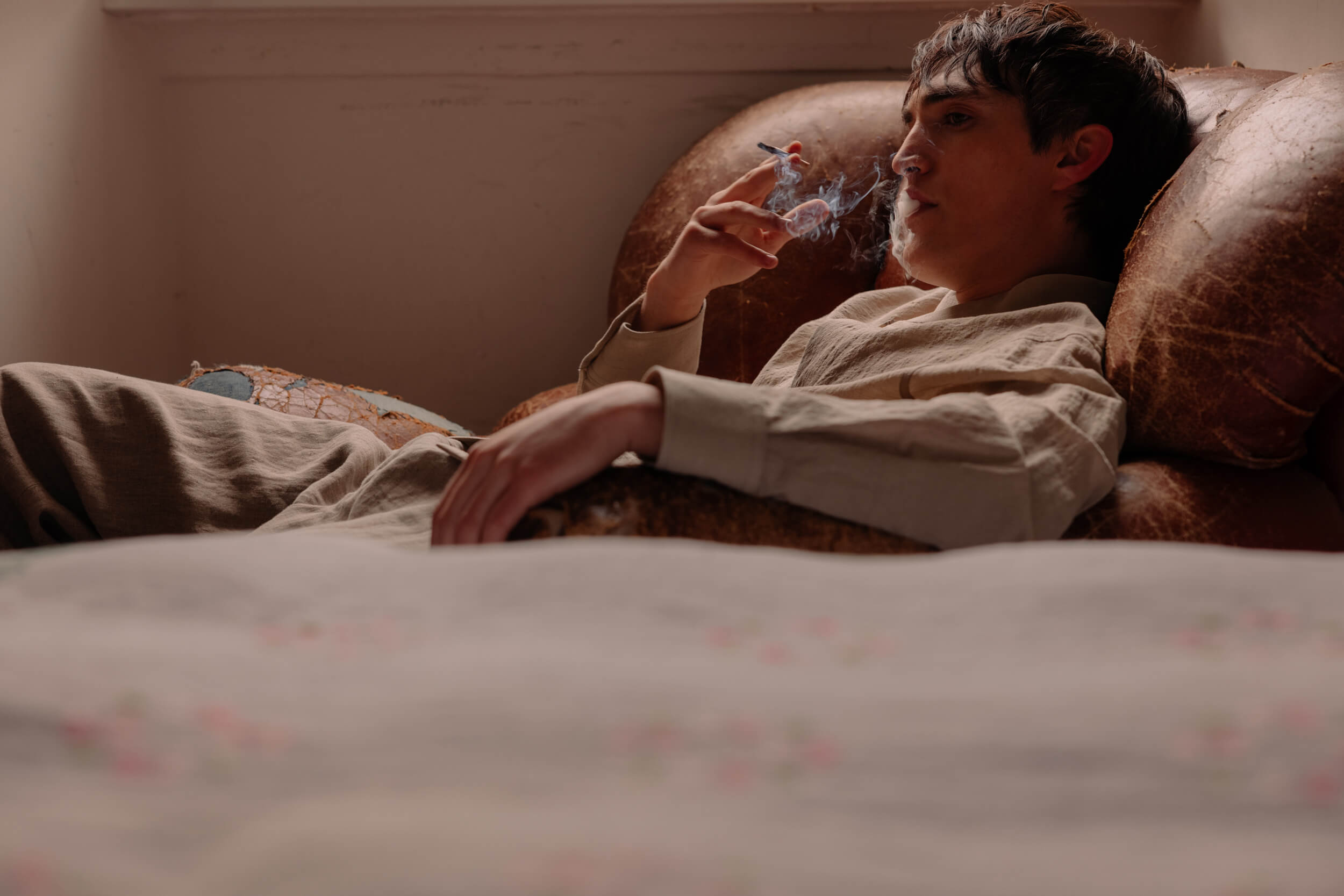
“Chopin”
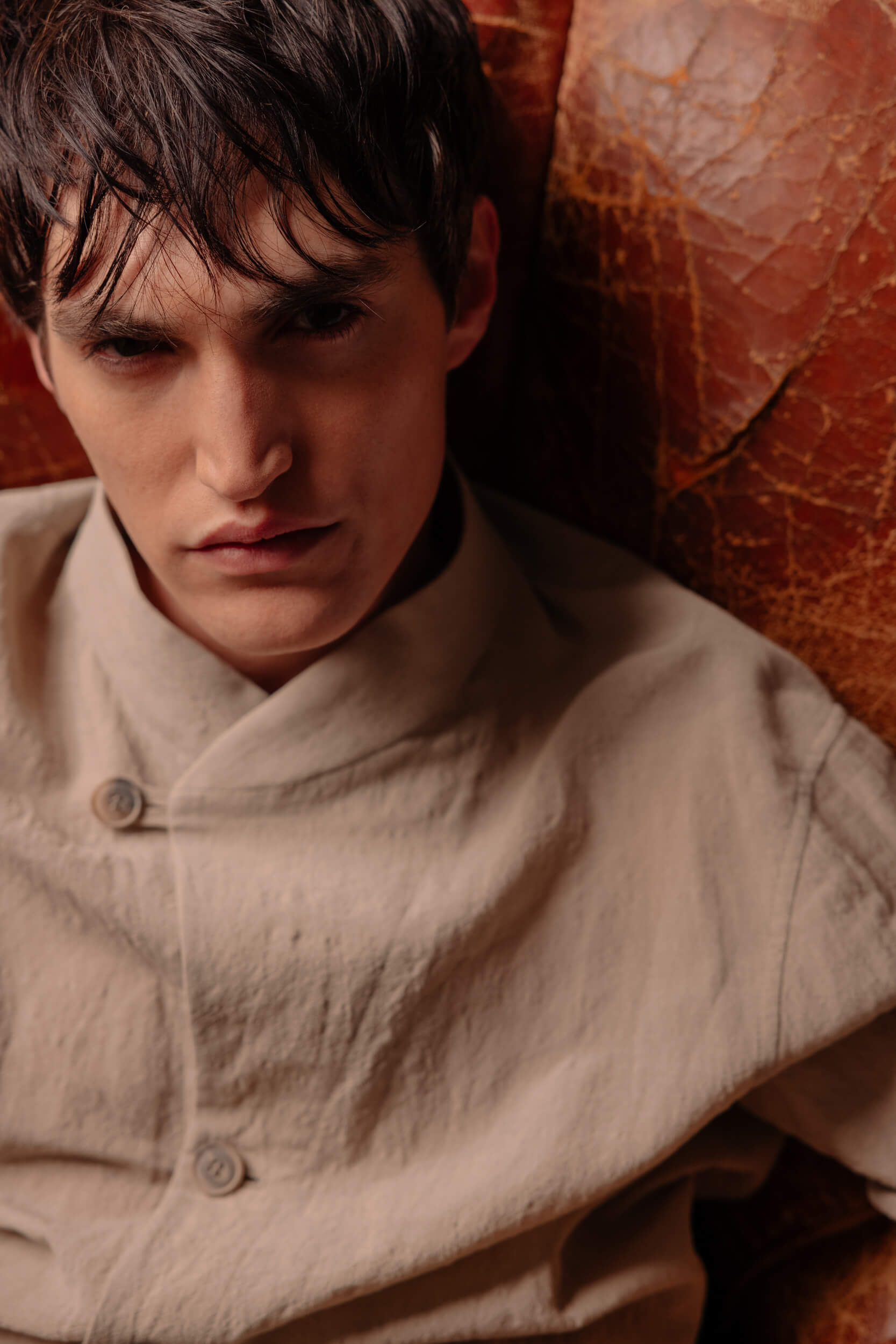
“Nirvana”
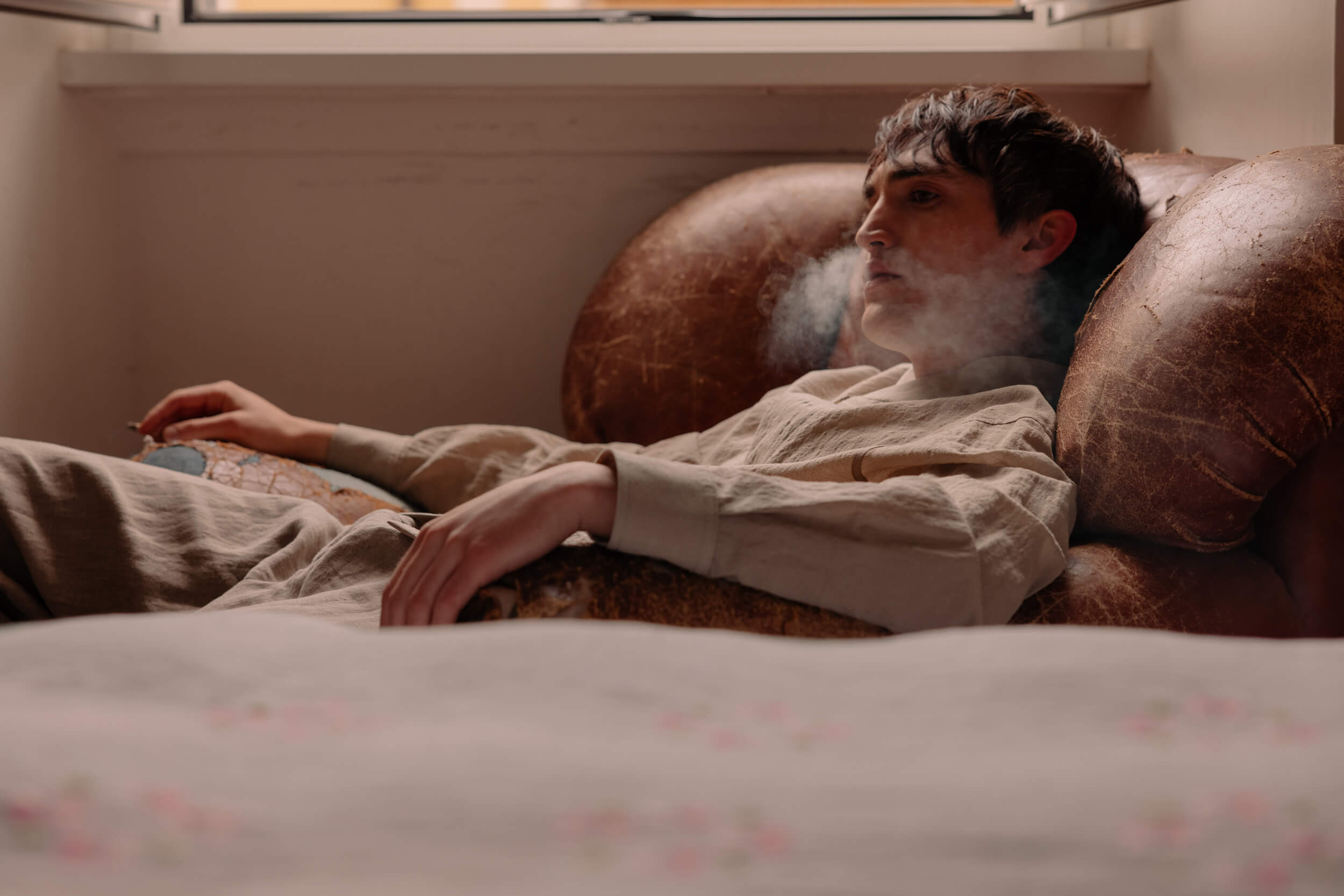
A character from a movie or TV show that you’d love to have as a friend?
Tyrion Lannister.
A real-life character you’d love to play?
Michelangelo Buonarroti.
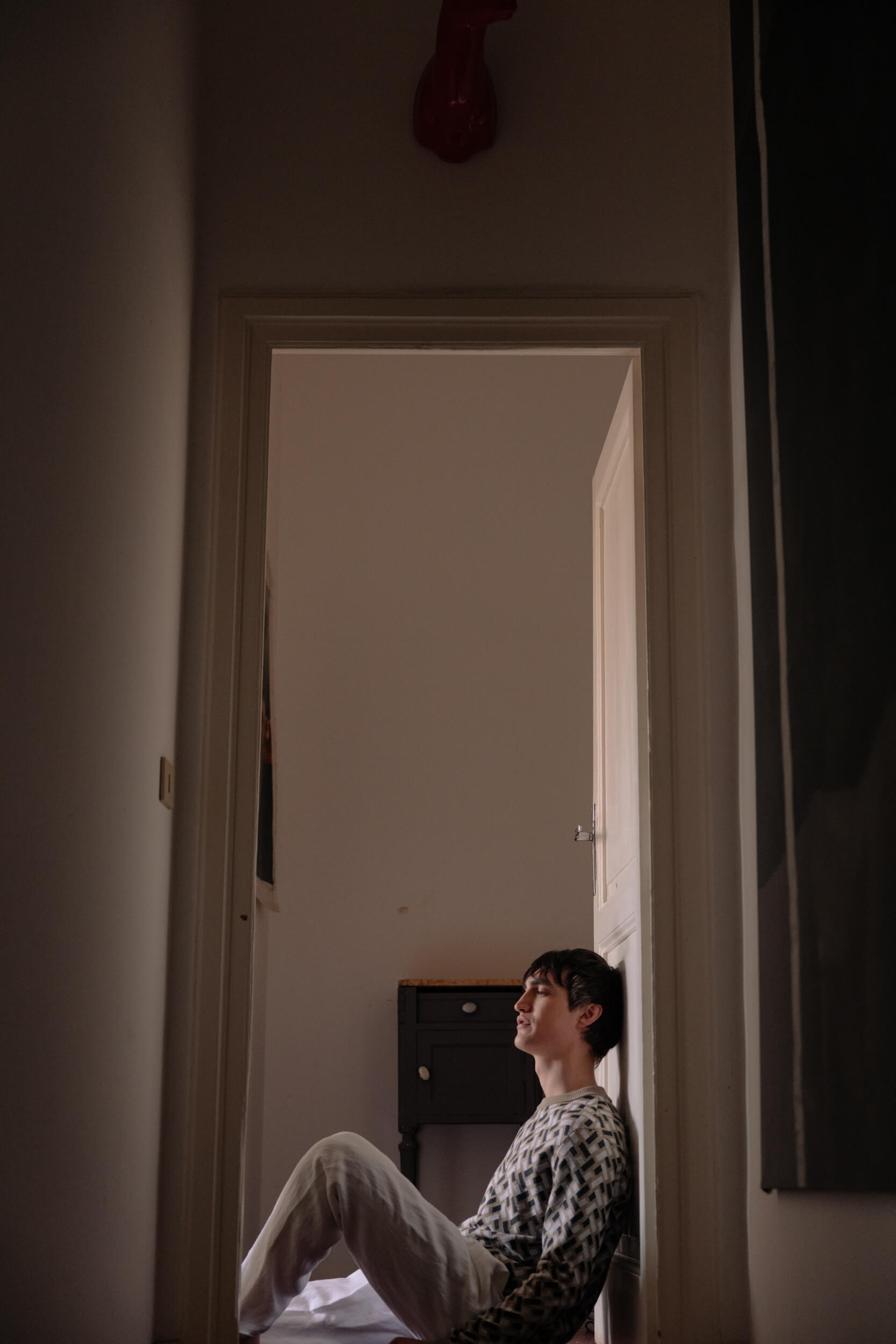
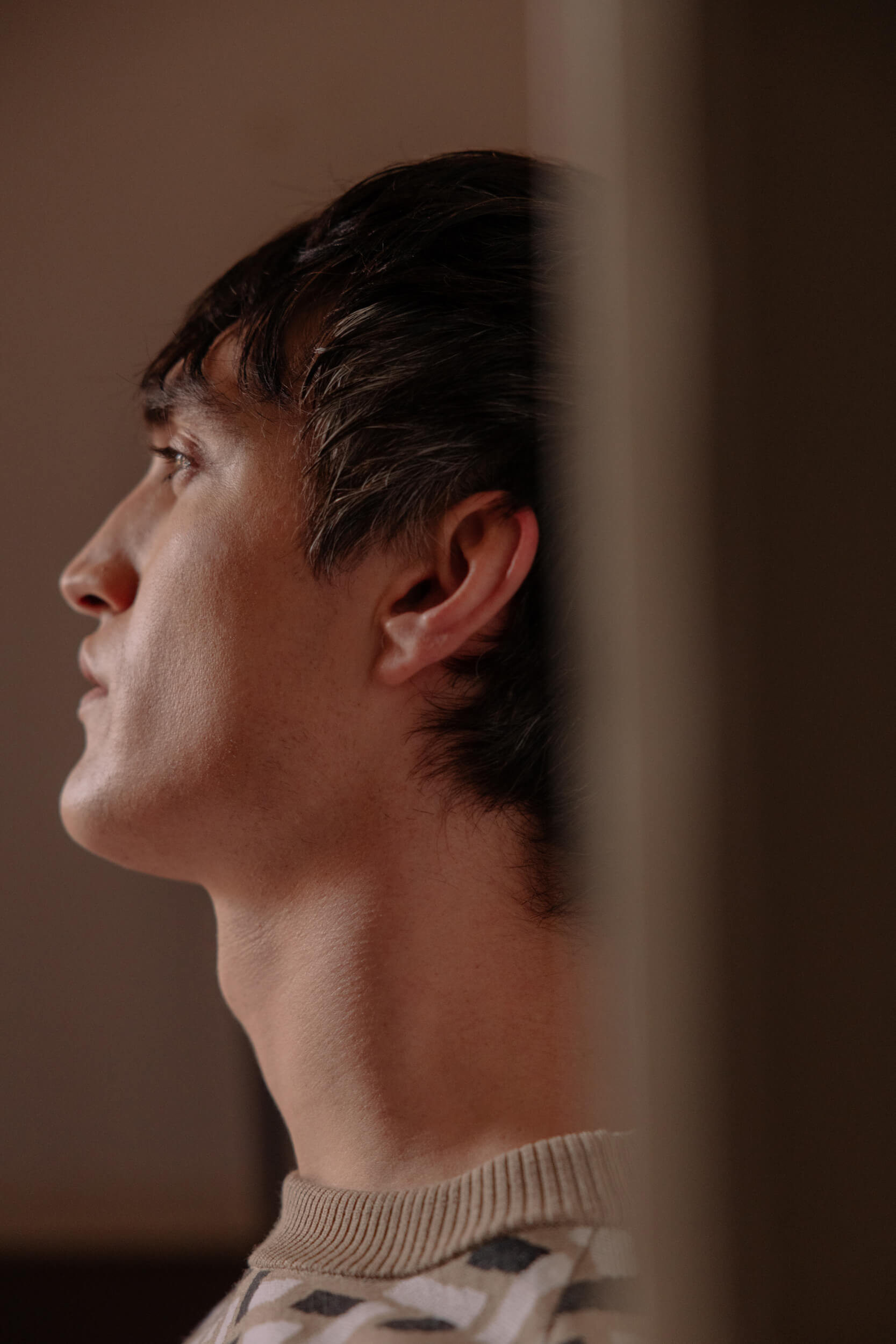
An epic fail on set?
I remember once, on the set of a movie some years ago, I got there in the morning all confident that I had to film a very tough scene, which I found out was scheduled for much later instead, so in half an hour I had to adapt to the right call sheet.
Your must-have on set?
Cigarettes, still water, and earphones.
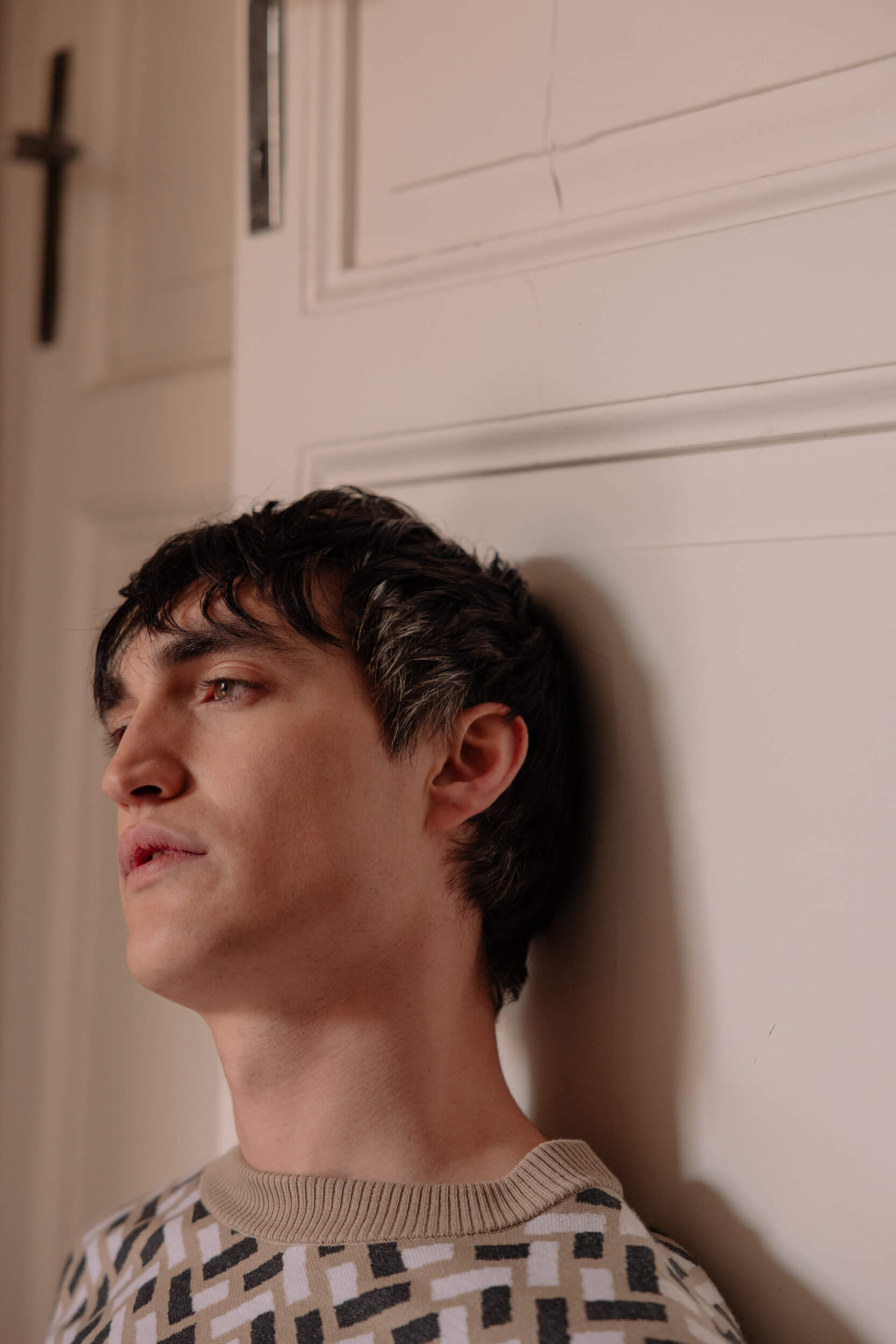
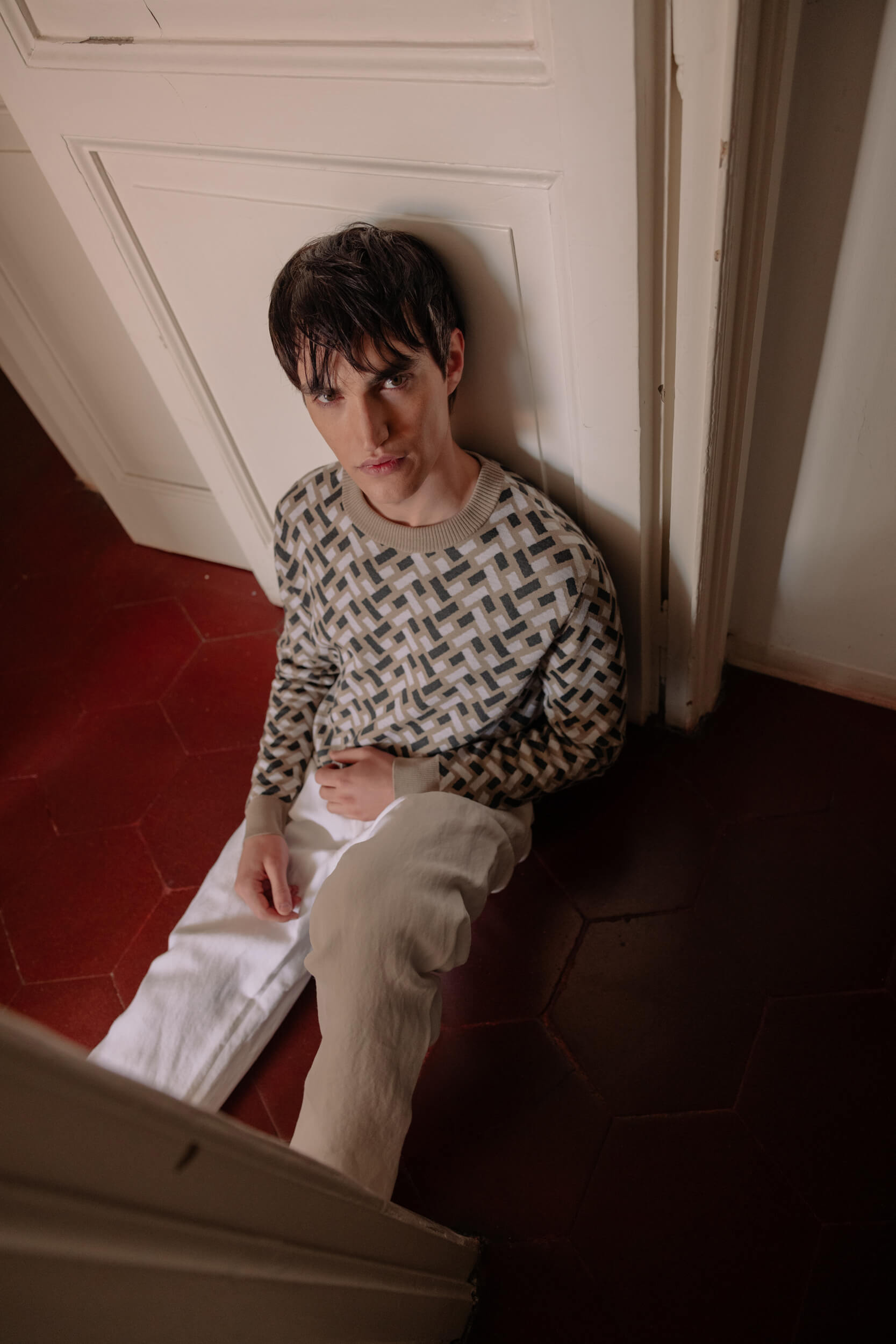
What does “feeling comfortable in your own skin” mean to you?
It means feeling good about yourself and accepting yourself for what you are, in every single one of your unique and irreplaceable nuances.
What’s the bravest thing you’ve ever done?
Giving up the perspective of a safe career to follow the artistic dream.
And your biggest act of rebellion?
See the previous question.
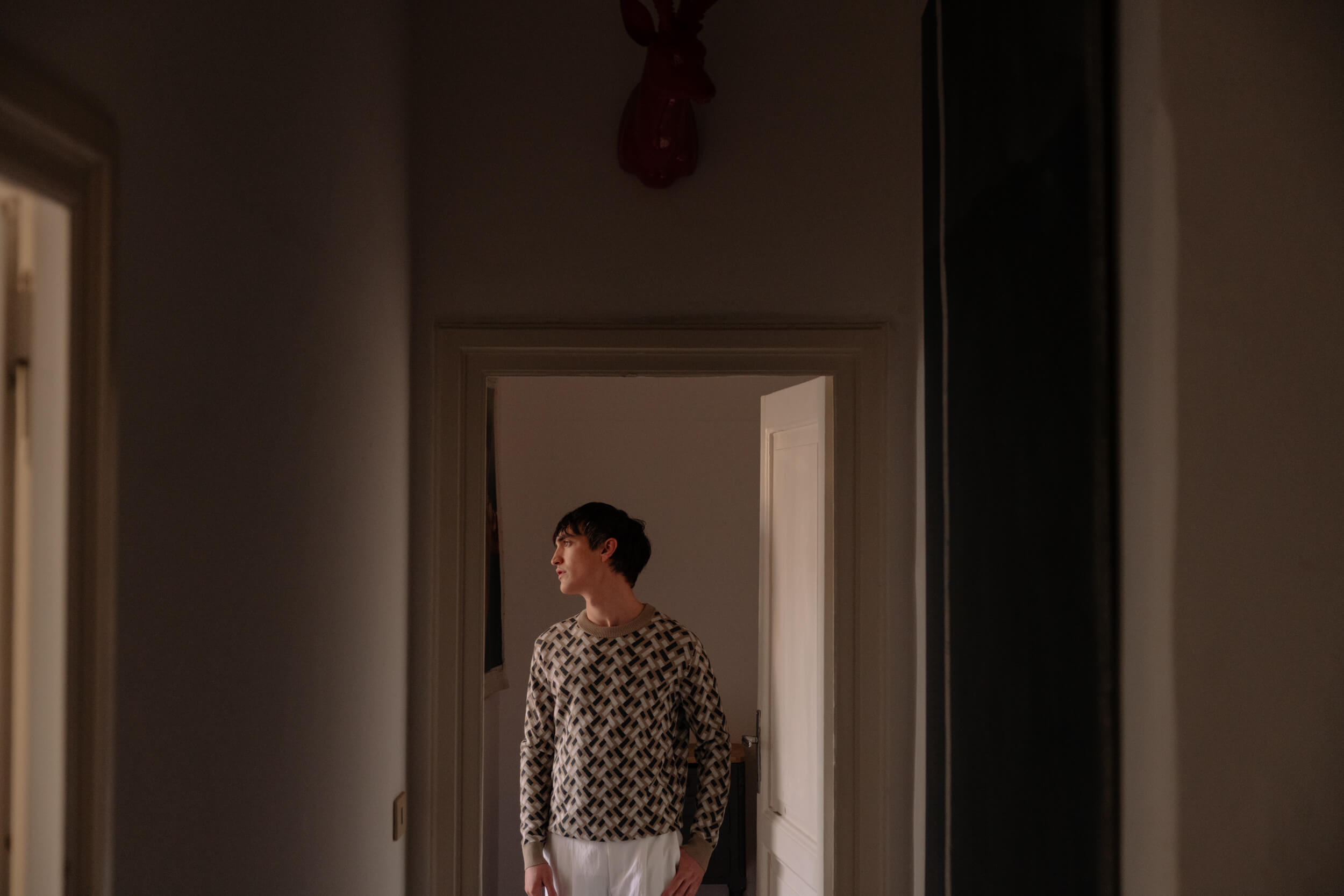
“Follow the artistic dream”
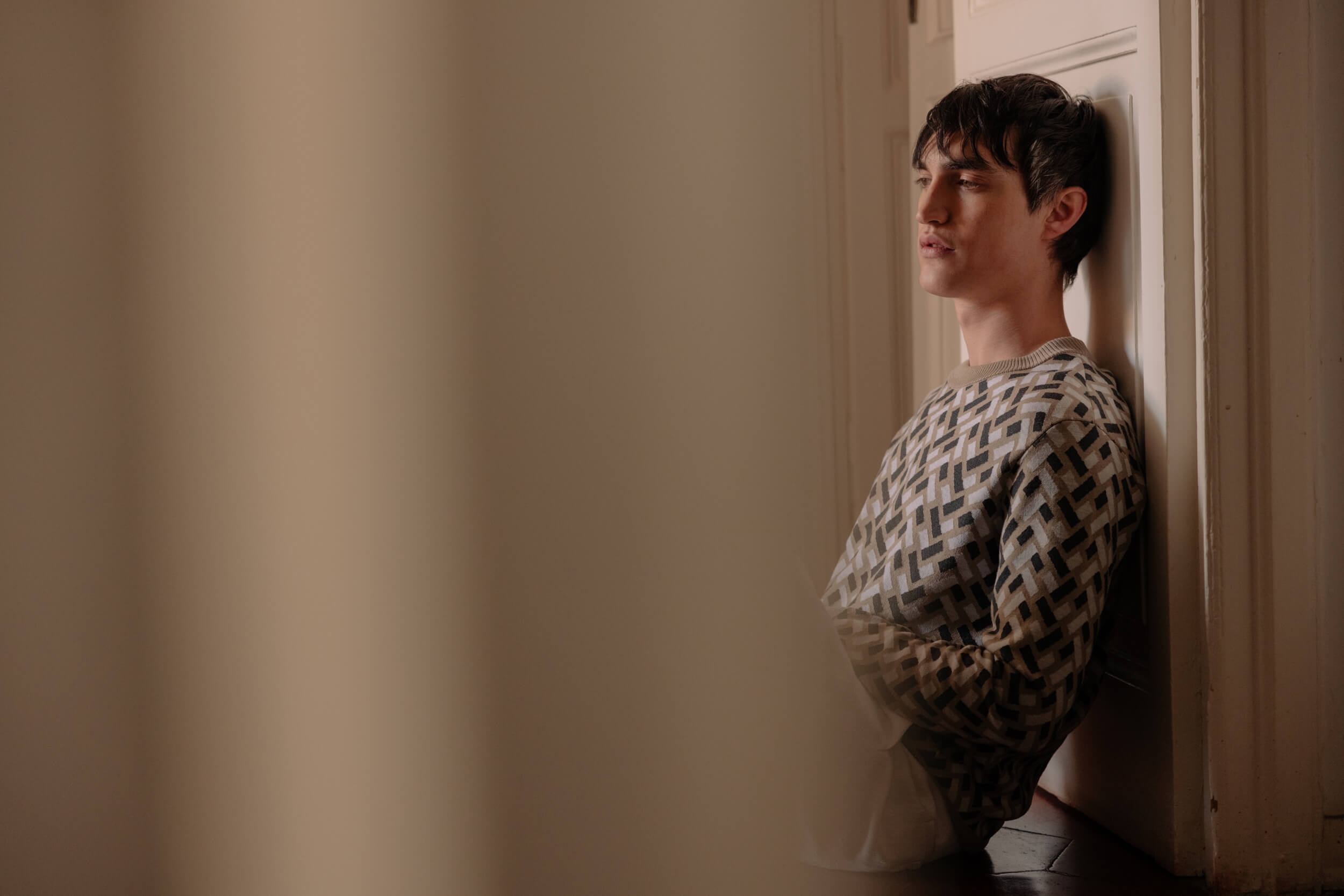
What are you afraid of?
So many things, every day, like everyone else. However, fears are beautiful because, in the right amount, they remind me to stay on track and maintain a high threshold of attention.
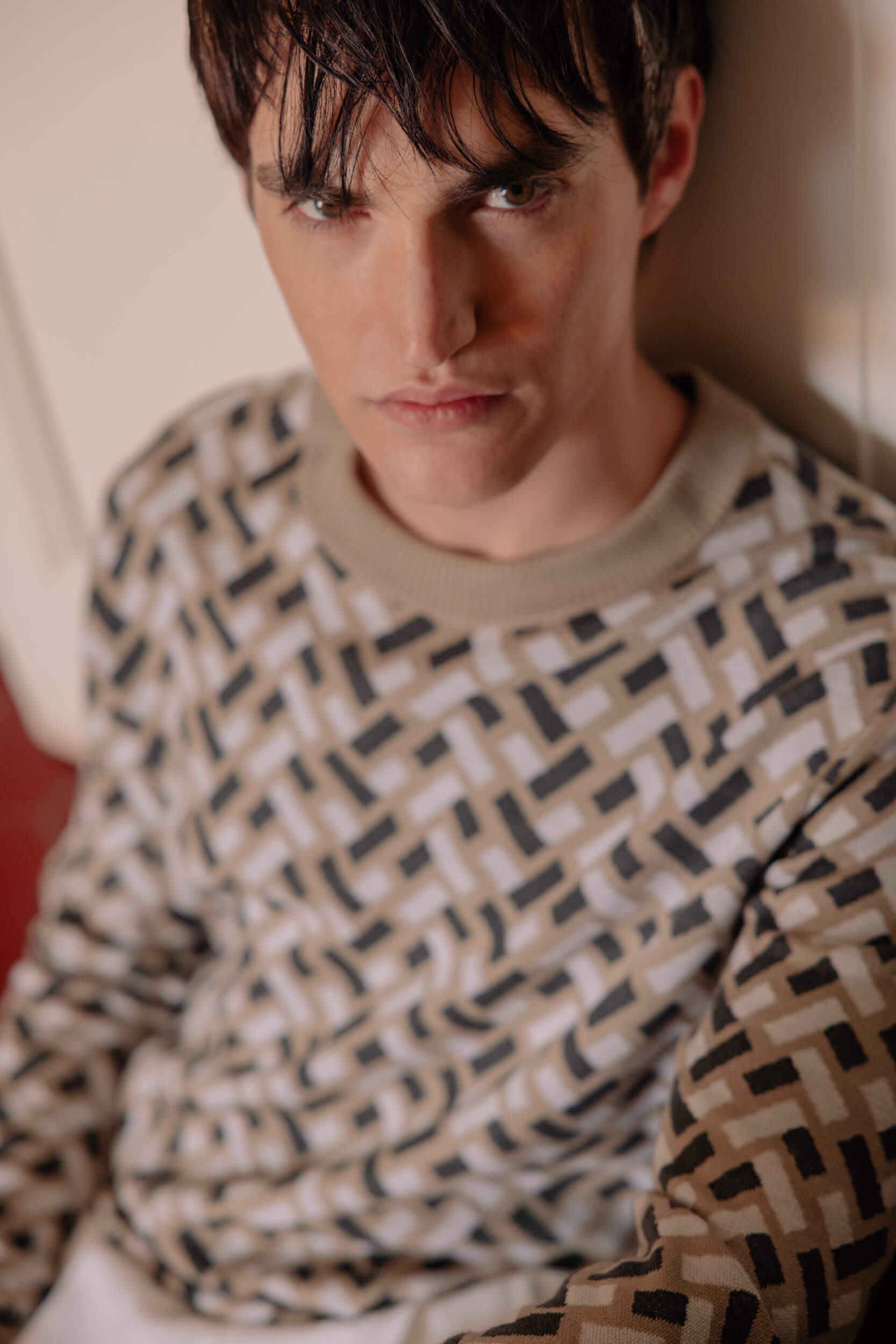
What or who was the latest thing/person that’s made you smile today?
My brother flipping out because we’ve run out of cereal.
Your happy place?
Paris!
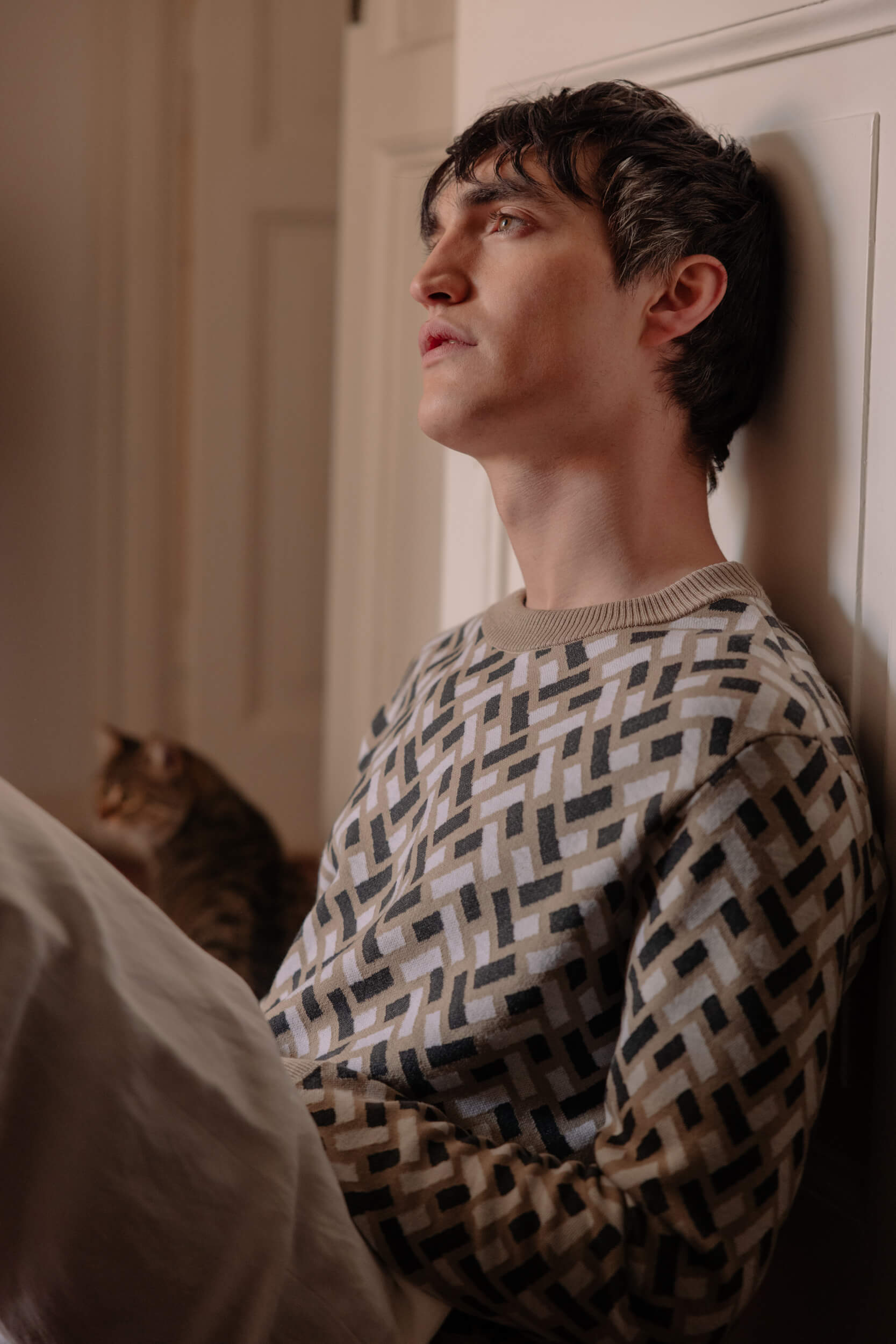
Photos & Video by Johnny Carrano.
Grooming by Franscesca Naldini.
Styling by Rebecca Baglini.
Thanks to Lapalumbo Comunicazione.
Location Manager: Luisa Berio.
Location: Interno12.
LOOK 1
Total Look: Moschino.
LOOK 2
Total Look: Giorgio Armani.
LOOK 3
Total Look: Giorgio Armani.

